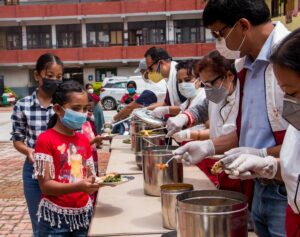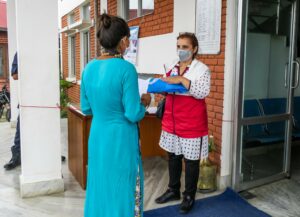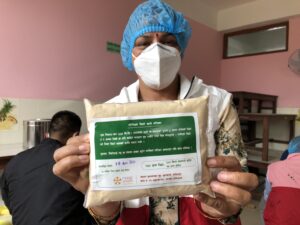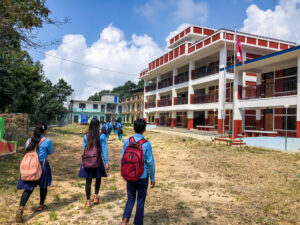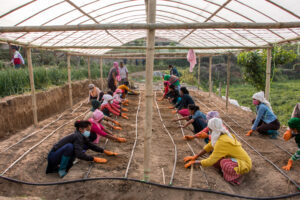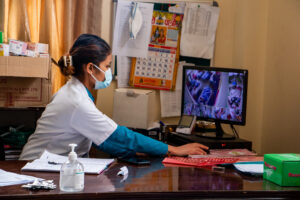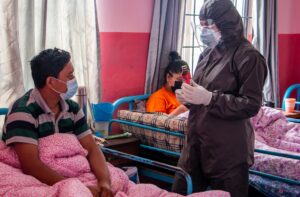Author: crystalnyf
Staff Spotlight: Chhori Laxmi Maharjan
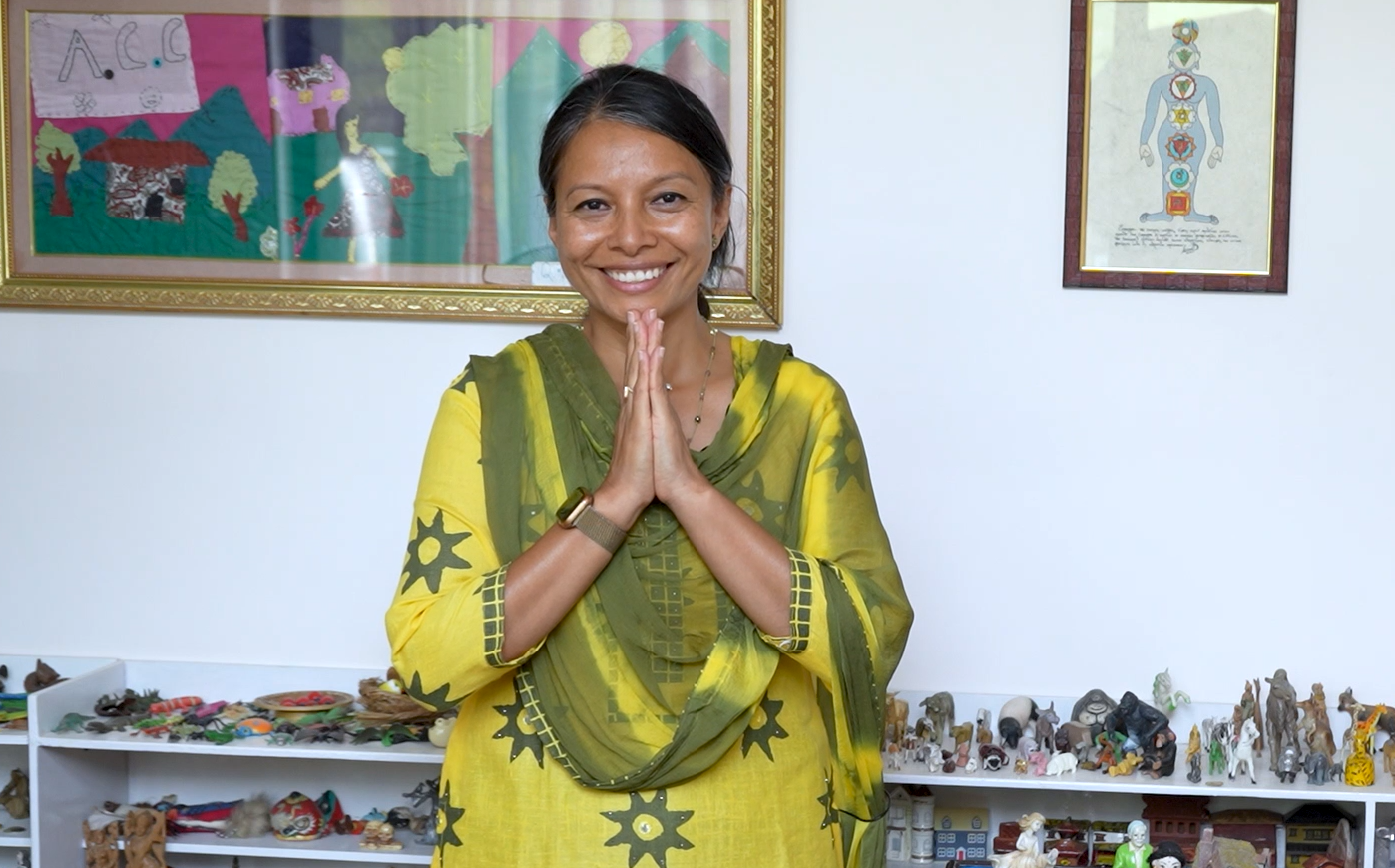
Chhori Laxmi Maharjan, Head of Ankur Counseling & Training Center
Dr. Chhori Laxmi Maharjan is the Head of NYF’s Ankur Counseling & Training Center. She cherishes daily opportunities to witness emotional healing in the children receiving therapy from her and her team.
“I get to know my client’s needs,” she says. “This is a chance to prepare them for any risks and achievements, as well as to help them address their most prominent issues, such as anxieties, worries, and hopelessness. I can be the safe container for them with a loving, compassionate heart.”
“Nisha”
One young patient, “Nisha*,” came to Chhori’s office when her guardians noticed she was struggling in school and finding it difficult to get along in social settings. Nisha described intense feelings of inner conflict, trust issues, loneliness, and poor self-esteem. As Chhori listened, however, it became clear that Nisha’s personality was joyful, hopeful, and creative. But traumatic experiences in her early life had made Nisha very guarded and distrustful of these traits.
“She mentioned her dream to become a successful person in the future,” Chhori remembers. This dream became a guiding light in Nisha’s healing journey.
Meeting once a week, Chhori and Nisha began coaxing her natural positivity out of hiding. They used a child-centered technique called sandplay therapy.
In the beginning, Nisha’s work revealed themes of deep hopelessness, with only small sparks of joy and playfulness emerging. But as she grew more comfortable, and in coordination with her guardians and teachers, she became kinder and more compassionate towards herself. Her perspective on herself began to shift, and she realized that she possessed the power to change. Gradually, Nisha became more hopeful about the future. She choose to invest more effort in her schoolwork and to open her heart to friends, family, and classmates.
Today, Nisha is still working with Chhori in therapy. But she is doing so with a solid foundation of her own self-worth and making tremendous progress. Chhori feels deeply grateful for the opportunity to help each of her patients explore and overcome the challenges standing between themselves and a joyful future.
*Confidentiality is critical in a therapeutic setting. “Nisha’s” story is a blend of several of Chhori’s past patients, with details changed to protect privacy.
Chhori’s Background
Dr. Chhori Laxmi Maharjan grew up in Kathmandu, in a traditional Newari family. Her father was a carpenter. Her mother managed the household, raising five children.
“My mother truly believes that education is the key to wisdom and freedom,” Chhori says. Her mother made every effort to ensure that all five children had access to this precious opportunity. Chhori took her education very seriously as a result. “I remember wanting to make my mother’s dream come true while I was young.”
One day, as Chhori was about to graduate high school, she came across an Introduction to Psychology book on her uncle’s bookshelf. The material was fascinating to Chhori, who was a thoughtful, emotionally attuned, service-oriented person by nature. “I decided to earn a higher degree to become the one who listens with an empathetic heart,” she says.
Meeting NYF
After receiving her bachelor’s degree in clinical psychology, Dr. Chhori Laxmi Maharjan began working for an organization serving adults and children living with HIV/AIDS. Mental health services are extremely important for individuals living with chronic health conditions, especially those which are life-threatening and highly stigmatized.
She quickly realized that the children and youth in her care were the most vulnerable to developing severe psychosocial issues. “Children need to have the opportunity to process traumatic experiences in a manner consistent with their cognitive and emotional development,” Chhori wrote in her PhD dissertation in 2019. But unfortunately, “clinical psychology and therapeutic interventions are in their infancy in Nepal.”
“Deep in my heart, I felt that I needed to work for children.” In mid-2006, Chhori intersected with NYF leadership, including Som Paneru and Olga Murray. Our organization was searching for a counselor specifically for children and youth, ideally one who specialized in sandplay therapy. “Without a second thought, I applied and joined NYF in October 2006.”
Ankur Counseling Center
Chhori helped to open Ankur Counseling Center right away, in 2006. “Ankur” is Sanskrit for “flower bud,” “sapling,” or “sprout.” Ankur became Nepal’s very first counseling center for children.
The first children to receive care here were the kids living J House and K House, the precursors to Olgapuri Children’s Village, as well as young survivors of the exploitative childhood bondage practice called kamlari. But Ankur’s mission quickly expanded to include beneficiaries of many other NYF programs, with remarkable results.
In 2014, with support from mentors, partners, and friends met through NYF, Chhori took a several-year hiatus from Ankur Counseling Center to travel to San Francisco to pursue her PhD in Psychology from the California Institute of Integral Studies. She earned her doctorate in 2019. Her dissertation focused on sandplay therapy as a child-focused technique in Nepal’s childcare homes, including case studies from NYF’s work. She paid special attention to the success of sandplay therapy (which was developed originally in the West) on the outcomes for children within an Eastern cultural context.
Fresh PhD in hand, Chhori returned to Ankur Counseling Center. She was more determined than ever to continue offering mental health resources to Nepal’s children.
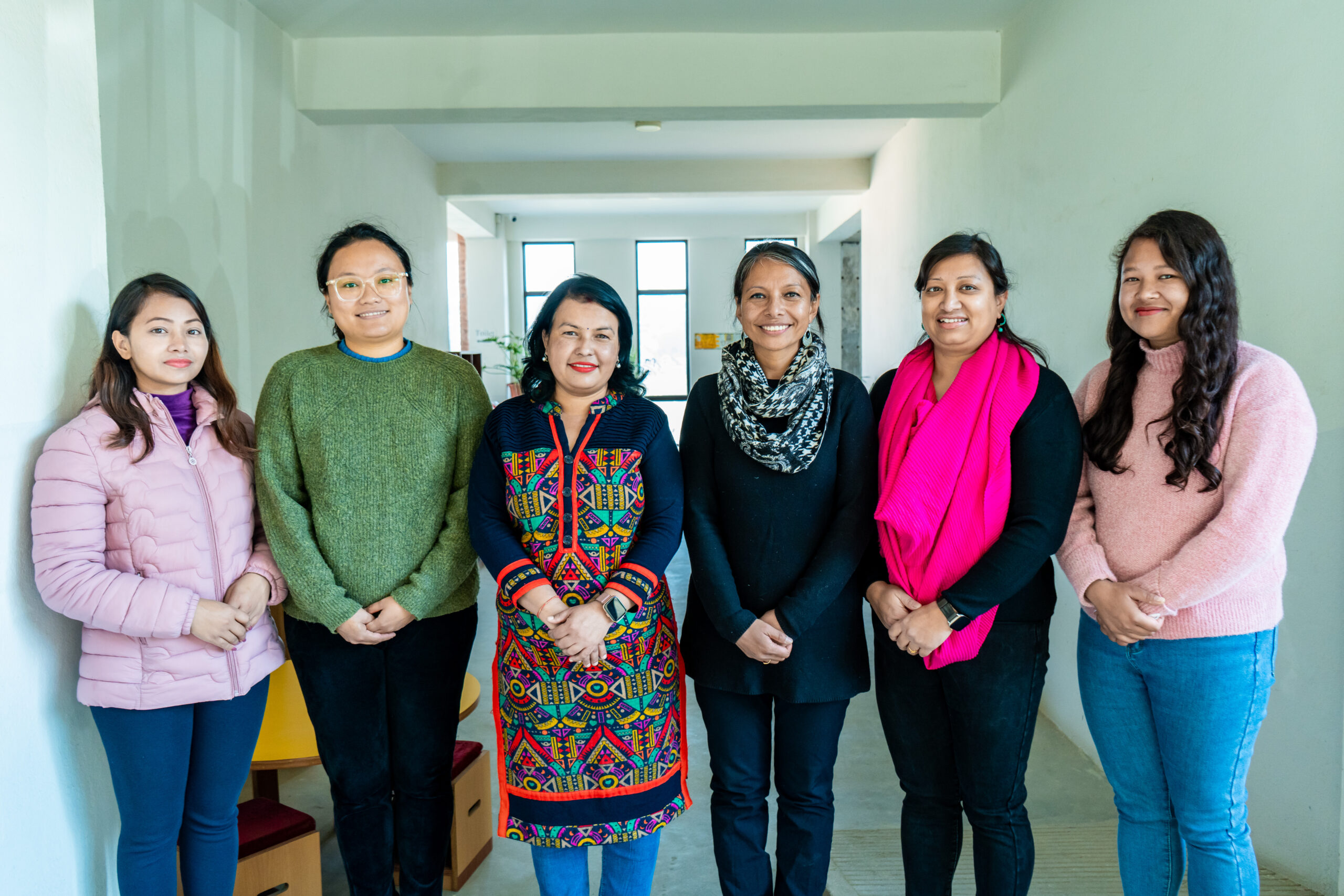
Childhood Trauma
Childhood trauma is severely disruptive to healthy development. Impacts can last a lifetime, long after a child has been removed to safety. Some common symptoms of those with unprocessed childhood trauma include poor self-care, self-harm, interpersonal struggles and difficulty with authority, trouble expressing emotions (both extreme reactivity and numbing), and more.
Trauma impacts the part of the brain called the “orbitofrontal cortex,” Dr. Chhori Laxmi Maharjan explains in her dissertation. The orbitofrontal cortex oversees complex decision-making, managing the balance between our emotions and analytical thinking. Disruption to its normal development results in learning and behavior problems, and even developmental delays and physical illnesses.
These disruptions include traumas like extreme poverty; homelessness; neglect and/or abuse; a parent’s mental illness or chronic or terminal illness; abandonment or death of parents; natural disasters (like the 2015 earthquake) or wars (like the Nepali Civil War from 1996-2006); displacement; bullying or stigma—and many more.
To “rescue” a child from childhood trauma, the first step is to do everything possible to interrupt that traumatic situation, providing a safe, stable environment with safe, stable adult caregivers. Helping these children to cultivate as many healthy relationships as possible is a crucial protective measure for emotional and mental well-being.
But this is only the beginning, as it does not undo the harm already sustained by the growing brain.
In order to set healthy brain development back on course, it is crucial to also provide these children with the care, support, tools, and space necessary to grapple with these complex, frightening experiences.
The tremendous success of all of NYF’s programming is due to our team’s keen understanding of the importance of mental health care for childhood trauma survivors. Chhori is a leader in ensuring all of NYF’s physical interventions are strengthened, supported, and sustained by robust mental and emotional care as well.
Sandplay Therapy
Ankur Counseling Center uses many different therapeutic approaches, but sandplay therapy is Chhori’s specialty.
For both adults and children, a common symptom of traumatic stress is an intense struggle to articulate the experience in a way that is organized and linear while also sufficiently capturing the complex layers of distress behind the narrative. This is because part of what makes an experience traumatic is its scale, scope, and impact on so many pieces of an individual’s life. The brain’s inability to untangle and sort this tremendous snarl is itself a major facet of the trauma. This is especially true for children, whose brains are still developing their baseline understanding of the world.
Sandplay therapy bypasses the factual story of the trauma entirely. It instead capitalizes on a child’s natural ways of learning: imagination, creativity, and pretend play. In much the same way healthy children will explore their worlds in miniature by playing house, acting out stories with their toys, or making up elaborate playground games (taking advantage of the options to swap roles, add dramatic surprises, adjust the rules, go back to change the ending, and more), a child grappling with trauma can use play to safely navigate the major sources of distress within their traumatic histories.
How Sandplay Therapy Works
In Chhori’s counseling room, a child is presented with trays of sand and many shelves of miniatures representing all parts of life and fantasy: figures of men, women, children, and babies; superheroes and villains; houses, castles, schools; gods and goddesses; trees, dump trucks, rubber duckies, dinosaurs, frying pans, puppies, and more. The child is invited to gather as many items as he or she wishes, and to create a world within the sand tray.
Chhori watches patiently as the child creates the world, careful not to interrupt the process. Some worlds—often in the beginning of a child’s journey—are highly disorganized, overwhelmed with figures in chaotic relation to one another. Other worlds are quite sparce, with figures appearing far away from one another. Still other worlds reveal consistent themes, like villains lurking in the shadows, families being reunited, or community roles.
When the tray is complete, Chhori asks the child if their creation has a title, or if they’d like to walk her through the world they’ve created. Certain figures clearly have more significance to the child than others—perhaps a specific problem the figure has encountered. Letting the child lead as much as possible, Chhori lets the tray become the subject, with the child explaining about the characters, their relationships to one another, their desires, and their struggles. Discussions emerge naturally from this process, allowing the child to gently explore challenging themes from a safe distance, and as the expert in control of their own created world.
The results are transformative, as children gradually peel through the layers in this safe, affirming environment, gently processing their trauma piece by piece.
And, wonderfully, sandplay therapy is a useful technique for children from virtually any cultural background. It’s especially crucial in a country like Nepal, where children come from many different subcultures.
A Day in the Life
Dr. Chhori Laxmi Maharjan has a very full daily schedule, touching on every NYF program in one way or another.
“Usually, my day starts with providing one-on-one counseling sessions,” she says. Chhori has an average of four individual sessions per day, each lasting 30-50 minutes. Most of her patients are children and youth, including Olgapuri Children’s Village kids, NYF Scholarship recipients, and children referred from other children’s homes or nonprofits working with families in Kathmandu Valley.
Twice a month, she also leads 90-minute group therapy sessions.
After each counseling session, Chhori makes careful session notes to document each patient’s progress. Occasionally, if necessary, she meets with parents or guardians.
Chhori also provides clinical supervision sessions with the rest of the Ankur team (currently six counselors, each with a master’s degree) and mental health professionals from other organizations.
Afternoons are for larger projects. Some days, Chhori leads trainings and workshops for mental health professionals, teachers, parents and guardians, social workers, and other people who work with children and youth.
Innovative Trainings & Workshops
Some of these trainings are for NYF’s teams, while others are specifically for organizations with missions that complement ours. For example, Chhori recently led a several-day workshop for staff members at a Kathmandu Valley women’s shelter which had been struggling with behavior problems from some of the children receiving services there. The training focused on trauma-informed discipline: methods of effectively addressing problematic behaviors in ways that recognize and honor the chaotic, frightening, and painful circumstances these children were responding to. Professionals who received this training responded with glowing appreciation. They have already seen remarkable improvement in their interactions with the children in their care.
Other trainings are part of larger NYF programs. Women in our Olgapuri Vocational School Industrial Tailoring program receive empowerment and goal-setting workshops as part of their curriculum. These students frequently report that these workshops were their favorite part of the training!
And, of course, Peer Counseling training is a major facet of the Caste Equality Project (CEP). Chhori is leading this program, working closely with CEP Coordinator Lalit Gahatraj to ensure our 30 Saptari District peer counselors are supported and empowered in their mission to begin building their community members’ self-confidence, overcoming generational trauma, and daring to seize opportunities to participate fully in Nepali society.
Community Mental Health Program
Mental health problems are very common across Nepal. But unfortunately, awareness of mental health concepts are still very low, even in urban areas. During the height of the COVID-19 pandemic, rates of mental health crisis spiked. At the same time, Ankur Counseling Center’s reach extended further than ever before.
During NYF’s rapid pivot to lockdown-safe programming, Chhori’s team was the first to introduce remote services. And soon, Ankur Counseling Center had expanded their offerings to include services to local women experiencing domestic violence, support for front-line healthcare workers, and training for other organizations serving women and children.
The COVID lockdowns showed local governments and other changemakers how important mental health care is. In mid-2023, the government of Lalitpur Metropolitan City (the area of Kathmandu Valley where NYF’s offices are) invited Ankur Counseling Center to launch a Community Mental Health Program. Chhori has been leading this important work ever since. So far, she has introduced monthly “Mental Health Desk” activities in local schools, organized World Mental Health Day celebrations, and provided mental health awareness training for students, teachers, healthcare workers, social workers, and traditional healers.
What’s Next?
Dr. Chhori Laxmi Maharjan is involved with many Kathmandu-based organizations focused on mental health. She’s passionate about applying the world’s best understanding of psychology to a Nepali cultural context.
Most psychological care techniques today were developed in Western cultures, which in many ways are very different from Nepal’s society! As a result, some care techniques which are very effective for an American mindset or worldview are not culturally appropriate for Nepali patients. However, Chhori understands the scientific basis for these techniques. She and her network of Nepali psychology experts are deeply interested in studying which of these approaches may have promise in a Nepali context, with a few culturally minded tweaks.
Meanwhile, she says, “Personally, I feel NYF is my second home. My values match with NYF’s values.” Our organization gives her a sense of belonging and of a meaningful life. And because NYF is structured with trust in our on-the-ground experts, Chhori has plenty of opportunities to stretch her expertise as far as she is able.
“Working more than 15 years with children and youth, I have learned that suffering can be reduced or prevented by cultivating compassion,” Chhori says. “I can see the hardships in the community—and opportunities for community transformation.”
NYF is deeply proud of Dr. Chhori Laxmi Maharjan and the work she is doing to advance mental health care in Nepal—especially for children and survivors of trauma.
You are not alone. If you or someone you know is experiencing a mental health crisis or thoughts of suicide, get help right away. You can contact your physician, go to your local ER, or call the suicide prevention hotline in your country. For the United States, you may call or text the Suicide Prevention and Crisis Hotline at 988. You can also message the Crisis Text Line by texting “HOME” to 741741 or visiting https://www.crisistextline.org/. Both programs provide free, confidential support 24/7.
Staff Spotlight: Ram Babu Rai
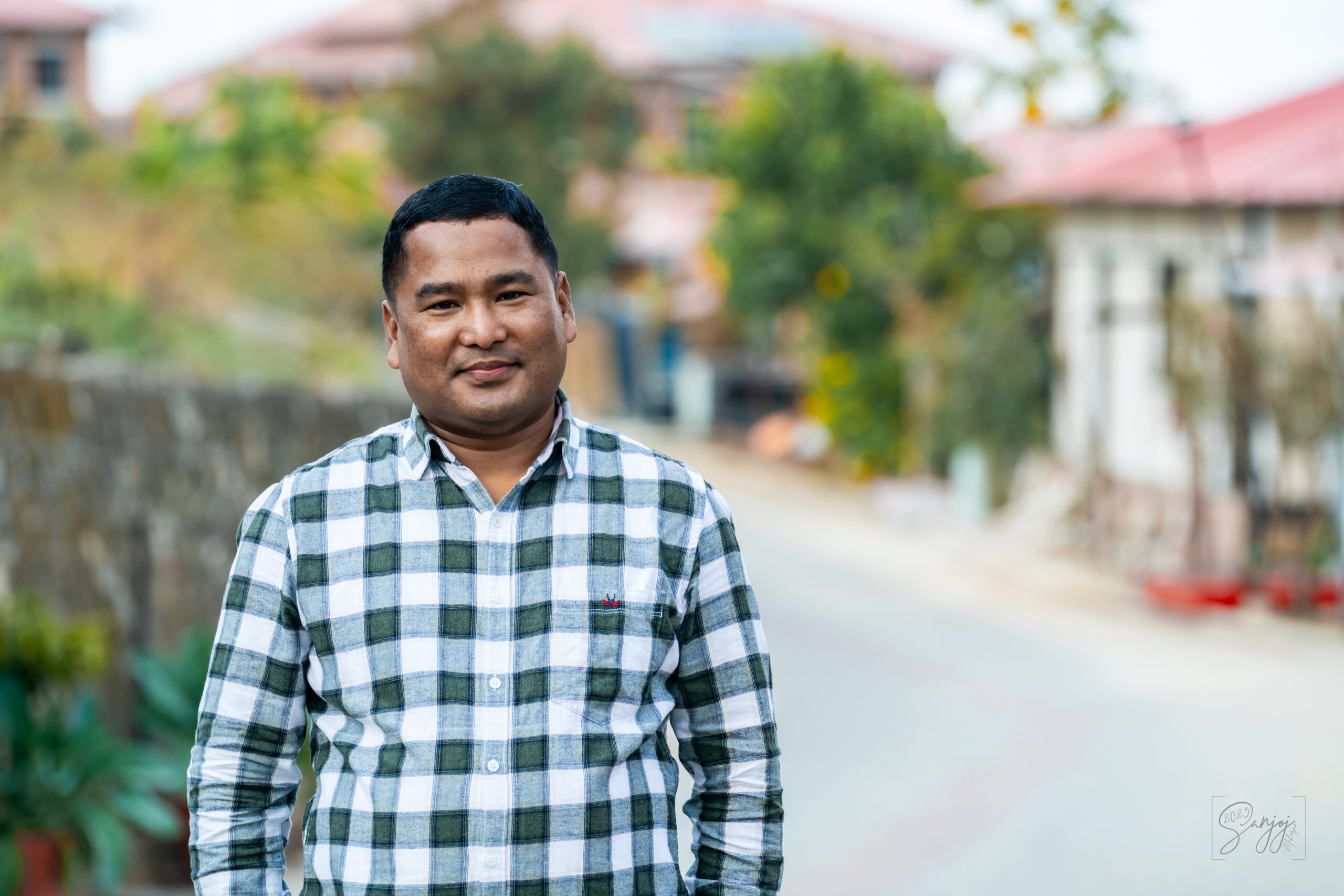
Ram Babu Rai: Kinship Care Program Officer & Technical School Scholarship Officer
In December 2023, Ram Babu Rai dropped in to check on Niraj*. Niraj is an NYF scholarship recipient who had recently completed culinary school. Niraj’s grandmother was overjoyed to welcome Ram Babu, proudly sharing stories of her grandson’s recent successes, including his wonderful new job in a Kathmandu hotel. Niraj was making more than enough money to cover all of his expenses. He had even bought his grandmother a gorgeous new sari as a gift. Beaming with joy, she placed the sari in Ram Babu’s hands so he could admire it. When Ram Babu looked up at Niraj, the young man smiled with a hard-earned confidence.
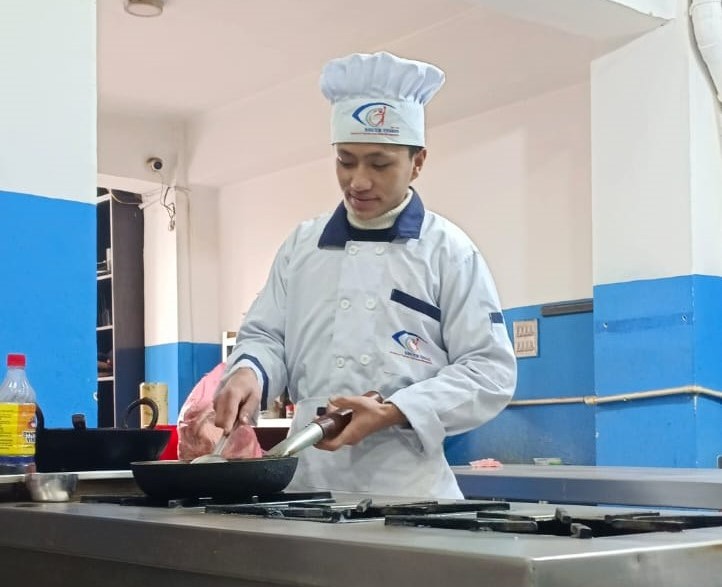
“This is the unique quality of NYF,” Ram Babu explains. “NYF takes a personalized approach. Each child is given support based on their actual needs rather than a blanket approach. We build a relationship with the children and families we serve and provide mentoring and guidance over the years. At the end of it, each individual child’s life is visibly transformed. We do not abandon children halfway.”
For children in NYF’s Kinship Care program and those receiving Technical School Scholarships, it is Ram Babu who builds and maintains that crucial relationship. He rarely has what one might call “office time”. Instead, he’s almost always out in the field, managing more than 250 individual cases at a time.
Ram Babu Rai’s Background
Ram Babu Rai comes from the Rai community, one of the oldest distinct ethnic minorities in Nepal. About 2.3% of Nepal’s population belongs to this group, mostly in eastern Nepal. Rai culture, languages, history, and traditions are unique—which has unfortunately resulted in “outsider” status within Nepal’s broader systems.
Growing up, Ram Babu lived in a small agricultural village in Nuwakot District, in the Himalayan foothills not far from Kathmandu Valley. Public education was not available for most children there, and it was given a very low priority by the community. When families could somehow afford to send children to school, they focused on educating their sons—never their daughters.
As in many rural communities throughout Nepal, arranged child marriage was very common in Ram Babu’s village, for both boys and girls. These marriages serve a complex purpose within the social network of the community, connecting families and forming the basis for close relationships into the future.
Ram Babu was only 14 when his parents arranged his marriage to Laxmi—and she was only 13. Both were too young to truly understand the impact such a marriage would have on their lives moving forward. “I don’t even recall my marriage,” Ram Babu says now. “But I still own a little coat from my wedding, reminding me how little I was at the time.”
The Realities of Child Marriage
At first, Ram Babu’s marriage didn’t change much about his life. His family was well-off enough to send him for an education, and his studies continued after his wedding. But as the years passed, Ram Babu realized that his experience and Laxmi’s experience were very different.
“While I was able to continue my education up to my bachelor’s degree,” he says, “my wife’s life was trapped in childrearing, household chores, and laboring in the farm.”
Laxmi was only 14 when they became parents for the first time, and the experience was devastating for her health. Neither of them had realized the long-term impact early childbearing could have, and Ram Babu was horrified. He was even more horrified to learn how common Laxmi’s experience was for girls and women in his community.
To this day, preventing child marriage is a deeply personal, important issue for Ram Babu—especially for girls. “I’m happy that at NYF I can work on something that is very close to my heart: preventing child marriage through education.”
Making a Change
Ram Babu’s education outside of his village opened his eyes to possibilities his community was missing. By the time he was a young adult, he had become one of the most educated people in the village—and he didn’t want to leave his community behind.
“These were my own family, uncles, aunts, and relatives,” he says. “I was pained by the utter poverty of my community. The condition of the girls was worst. They were oppressed and beaten and not given any opportunity. I felt that education and awareness would somehow help the community make any breakthrough from the current situation we were trapped in.”
Ram Babu and a few likeminded friends established a small private school right in their village. This opened up a new opportunity for local boys and girls. They didn’t have much, but they put everything they could into this venture. Ram Babu became one of the teachers.
That’s where Ram Babu Rai was working when he met Som Paneru and NYF in 2007.
Joining NYF
In 2007, NYF had heard about the situation for young girls in rural Rai communities. In response, we had sent a small team to explore the possibilities of starting an education program.
Som and the team were impressed to discover Ram Babu’s school in one of these villages. Ram Babu was thrilled at the idea of bringing in outside support to supercharge his goal of empowering Rai girls. When NYF confirmed they would be able to start an education program here, Som asked if Ram Babu would be interested in becoming NYF’s implementation leader on the ground. Ram Babu accepted, and he’s been with NYF ever since.
“We launched the Rai Girls’ Education program starting with 150 scholarships for girls in my village,” Ram Babu recalls. “We gradually expanded to other villages and supported over 300 girls. Besides scholarships, we built three schools in coordination with the local government, provided additional teachers, and ran teacher training to improve the quality of teaching and learning in the schools.”
In these early years, Ram Babu also oversaw new community centers where girls and women could access safe, trustworthy childcare while they attended classes or went to work. “These spaces became a hub for discussing social issues and raising awareness against early marriage and other harmful practices.”
He was also honored to take part in preserving parts of the Rai culture that were rapidly disappearing, collecting and documenting information with Nepal’s National Language Academy.
A Growing Career in Child Protection and Education
Ram Babu is particularly proud of a group of Rai girls who didn’t quite fit into the regular academic track. He instead enrolled them in vocational and technical training programs in areas like nursing and land surveying. “All these girls are now government employees,” he says. Before, Rai people were almost completely absent from these professions, and even from the government. “They call me sometimes to share news about their jobs or achievements,” Ram Babu says happily.
Ram Babu’s work at NYF expanded rapidly to encompass other village-based scholarship programs. He’s now in charge of the entire Kinship Care program as well as our Technical School Scholarship program, bringing highly personal attention to each of the 250+ individuals NYF serves each year.
“I follow up on each student physically at least once every three months,” he explains. “I visit their school, as well as their home and family, and even the local government offices if needed, ensuring that they are doing well and attending school regularly.” Some students have special medical conditions that require extra support—Ram Babu monitors these things as well, ensuring that each child’s Kinship Care stipend is appropriate and sufficient for their personal situation.
Ram Babu keeps careful records on each child, collecting receipts and school documents from each family, and taking calls whenever a student or caregiver needs his feedback or advice. He also assesses potential new cases, conducting thorough reviews of each unique situation.
Preventing Child Marriage
All along, Ram Babu’s 30-year relationship with his wife, Laxmi, has deepened into one filled with trust and mutual appreciation.
Early childbearing caused many lifelong health issues for Laxmi, including permanent damage to her kidneys. Both she and Ram Babu are glad she can access regular, good-quality medical treatment for these conditions. They are both eager to discourage other young people from walking the same path.
Despite the challenges, Ram Babu and Laxmi have raised three wonderful children. Their eldest son is now pursuing a master’s degree. Their two daughters are currently working on bachelor’s degrees—a tremendous generational triumph.
In early 2023, while assessing Kinship Care cases in a remote village not far from Ram Babu’s own hometown, he discovered a high rate of similar marriage traditions to those he knew growing up. “The Balami community (a very small ethnic minority) still practices early child marriage and forced marriage,” Ram Babu explains. “Boys are entitled to ‘kidnap’ girls they like and marry them by force.” Once these girls are married, they drop out of school. Most girls in this tiny community don’t make it past 5th grade before getting married or entering the workforce.
Ram Babu took it upon himself to conduct a more thorough assessment. He then recommended to the Kathmandu team that NYF create an enriched Kinship Care scholarship to protect them from these practices. “We’ve now launched a special scholarship program for Balami girls in Kagati Gaun,” he says proudly.
Now in its first year, this mini-program is providing enriched Kinship Care stipends for 15 girls at risk of early marriage due to their families’ economic situation. Parents know that if they allow their daughters to be “kidnapped” or send them to work, the stipends will cease. Ram Babu has established close communication with the local school and the village government to monitor the success of these scholarships in lowering the early marriage and school dropout rates. And he is hoping the project can grow.
Click the button below to make a donation to support this work – and more!
Revival of Hope
Ram Babu’s work is challenging, but very rewarding. “In the 17 years I have worked at NYF, I have never had a day that I felt like not going to work,” he says. Helping bring hope to an overwhelmed family is a special privilege.
“After we study a case and decide to take them in, we tell them about the support they will get: school fees, uniforms, books and stationary, health care, money for food and clothing, etc. It’s usually beyond their expectations and the news re-instills in them a hope for an easier life. I feel fortunate to witness this happiness first-hand.”
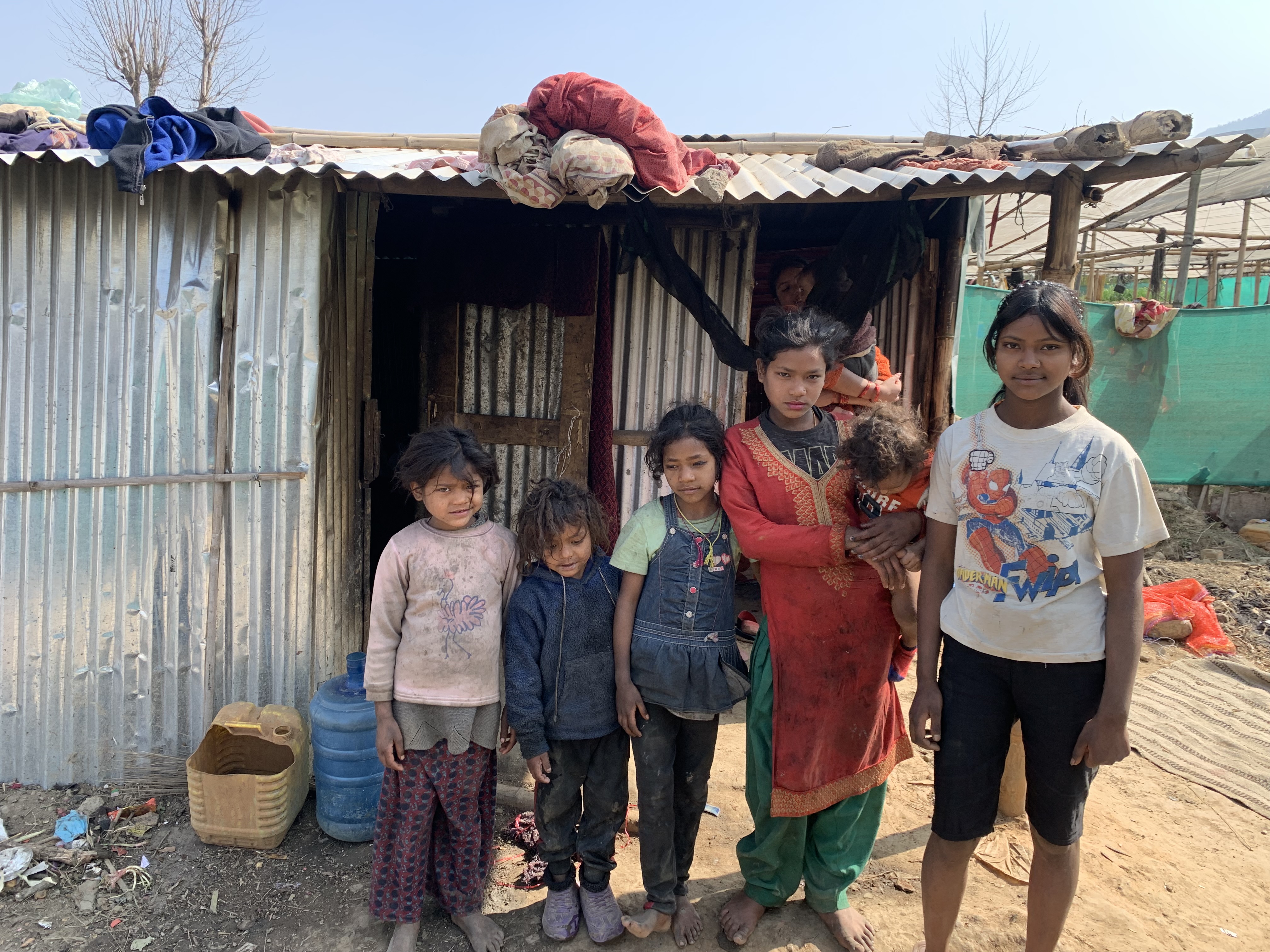
Lasting Impact & Community Recognition
Ram Babu loves his work—and he’s proud that the communities NYF serves are recognizing our impact as well.
One school, near a large slum area on the outskirts of Kathmandu, teaches a particularly high number of our Kinship Care students. These kids are the children of domestic laborers, factory workers, and others who make do by working important but grueling, thankless, and underpaid jobs because they have no other options. Kinship Care stipends allow these kids to stay in school, well-fed and properly clothed, while remaining in the loving care of their hardworking families.
The school serving these children recently honored NYF with an award for the work we are doing. Before NYF got involved with these communities, kids from this area frequently dropped out of school to help support their families. Schoolteachers described how many of these kids, disillusioned by how impossible it seemed to access any further opportunities, were never able to achieve their tremendous potential.
Now, thanks to Kinship Care stipends, many kids who originally faced similar prospects are becoming engineers, doctors, government employees, agriculturalists, and much more. And they’re bringing some of that success back to their families and greater communities.
Olga’s Promise is now our shared promise
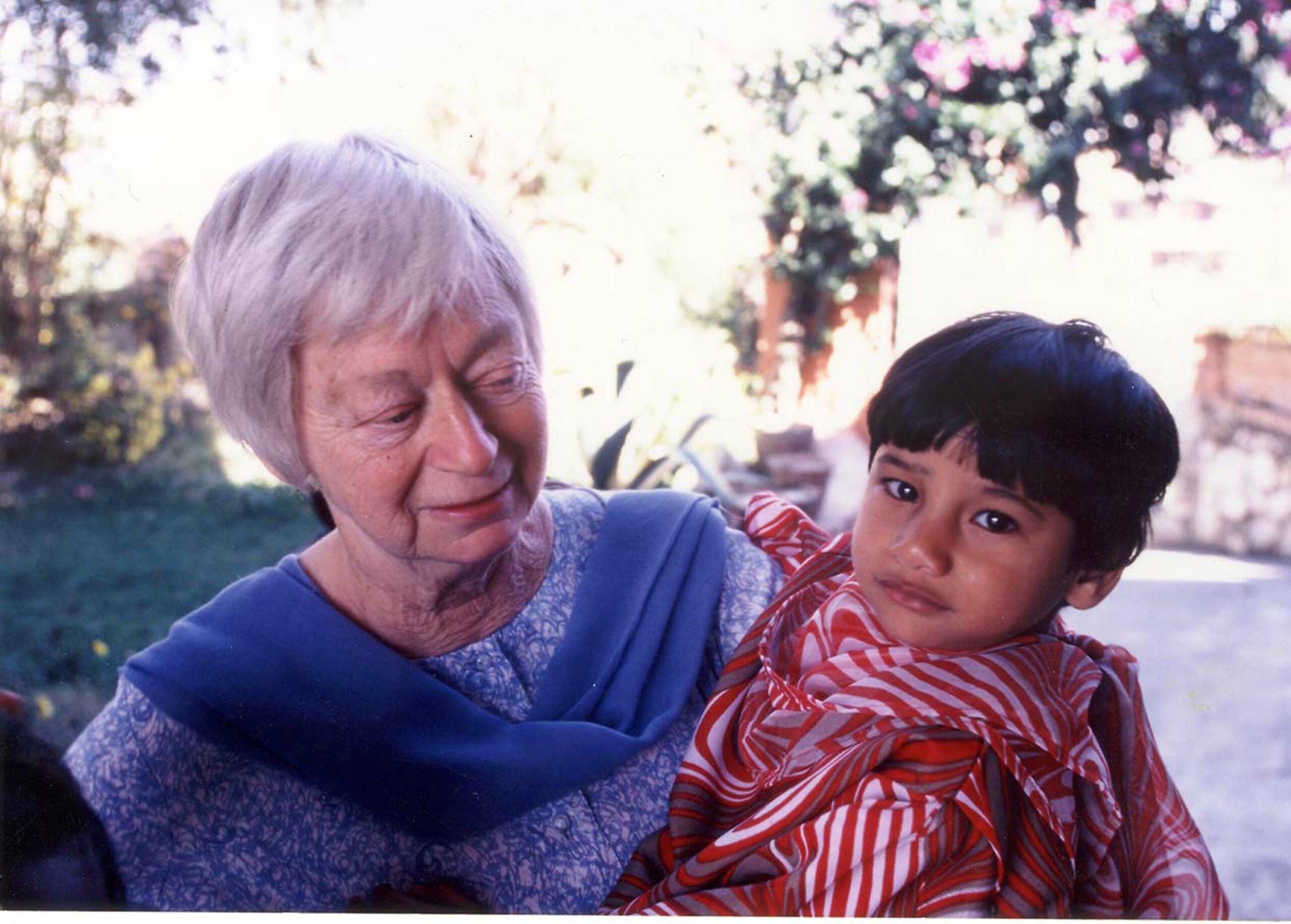
How to help us keep Olga’s promise
Olga’s Promise is a common phrase within the NYF Community—but with so many new friends among us, we’ve begun receiving questions about this important part of NYF’s fascinating history! Read on to learn all about Olga, her remarkable promise to Nepal’s children, and the work she defined as the most important of her life.
A Brief Biography: Olga Murray
Olga Murray had already led an extraordinary life before founding the Nepal Youth Foundation in 1990, in her 60s.
Born in the Transylvania region of Romania in 1925 to a Jewish Hungarian family, Olga and her family immigrated to the United States when she was only six.
Olga grew up in the Bronx during the Great Depression and World War II. She later recalled her parents’ ingenuity and resourcefulness as they navigated the economic hardships of the time, and their anxiety and heartache during World War II, when all contact with their families abruptly ceased. Olga’s father’s entire immediate family and her mother’s mother, brother, and several sisters were murdered during the Holocaust.
Olga graduated high school at age 16, only a month following the attack on Pearl Harbor. The prospect of college had not occurred to her as an option. Instead, she enrolled in a secretarial skills course, learning touch-typing, shorthand, and other office skills.
Then, at age 17, she embraced her innate wanderlust, boarding a train for exotic Los Angeles—the furthest she could travel during wartime. Olga spent the next years traveling the United States alone, supporting herself in tiny apartments while working clerical jobs, and taking in all the diversity and wonder she could find.
Soon, friends took notice of Olga’s sharp intellect, and began suggesting that she enter college. Olga did so, financing her educational journey by waitressing at night and earning a political science degree, cum laude, from Columbia University in 1949. She then applied for a job at the State Department, hoping to travel—but following a thorough FBI investigation, she was denied the opportunity because she had been born behind the Iron Curtain.
Social Justice & Early Career
The developing Cold War and Red Scare rhetoric deepened Olga’s interest in politics and social justice, and soon she secured a job working with the famed muckraking columnist Drew Pearson. She developed a passion for cutting through red tape and solving problems for ordinary citizens. She especially enjoyed leveraging the power of the press to advocate for oppressed people—a subject she was becoming increasingly focused on as the Civil Rights Movement got underway in the early 1950s.
Pearson, like so many others, took quick note of Olga’s tremendous potential, and her passion for advocacy. When Olga decided to risk pursuing a law degree—a subject that, in the early 1950s, was essentially unheard of for women—he encouraged her wholeheartedly, tweaking her working schedule to allow her to balance a full course load with her employment.
Olga earned her law degree at George Washington University in 1954, then moved to San Francisco to pursue a relationship with Judd Murray, the man who would be her husband from 1955 to 1961. She passed the California Bar Exam in late 1954 and was sworn into the California Bar soon thereafter—one of only six women in the entire cohort of hundreds.
The California Supreme Court
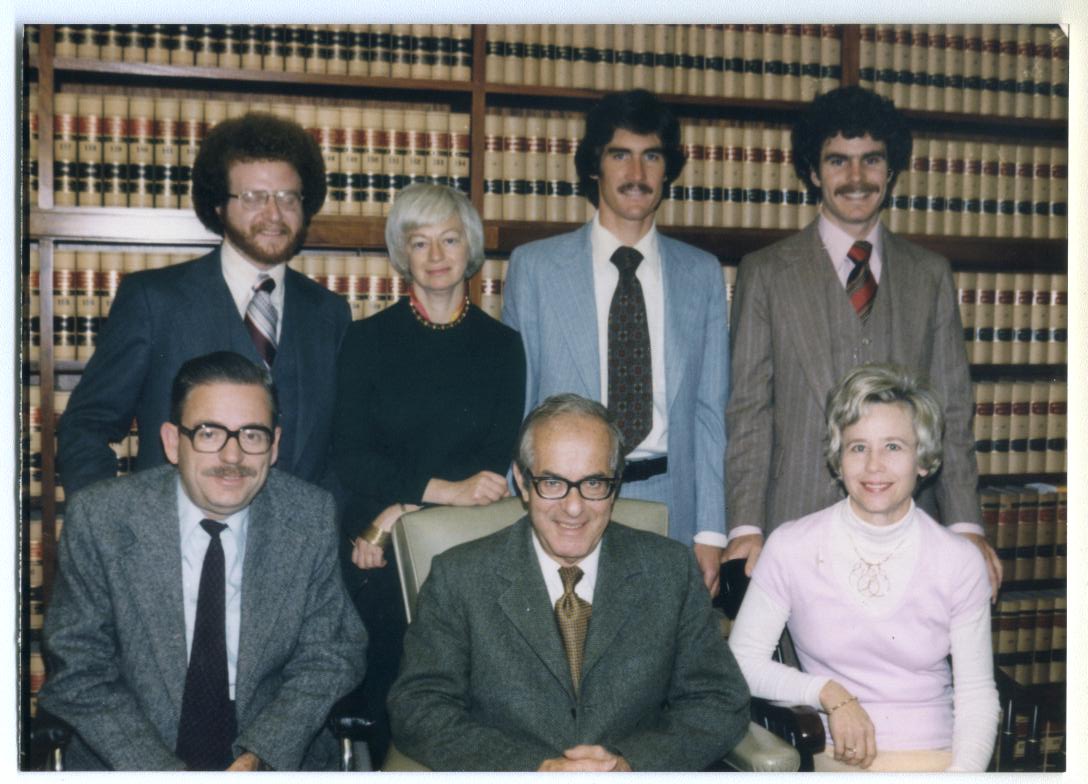
Against the odds, she soon secured a job working as a research attorney for Chief Justice Phil Gibson of the California Supreme Court—a position she held until his retirement in 1964. She then joined the staff of Associate Justice Stanley Mosk and remained at the California Supreme Court until 1992: the entire 37-year duration of her career. These decades saw the California Supreme Court pioneering many areas of law, developing new doctrines that were adopted by the high courts of other states. In her years as a research attorney, Olga helped write important decisions in the areas of civil rights, women’s rights, and environmental policy—work she took great pride in for the remainder of her life.
During this time, Olga traveled as often as possible, exploring Europe, Central America and any other destination that piqued her interest. In 1984, when Olga was 59, her lifelong wanderlust drew her to India—and Nepal.
Olga’s Promise
Olga’s first visit to Nepal was intended as a brief side trip. She knew nothing of the country other than that it was possible to trek in the beautiful Himalayas. Olga loved to hike.
She had no idea that this side trip would transform her life.
Embarking on a comparatively accessible trek from Pokhara, Olga passed through small, beautiful villages filled with friendly faces. With her white hair and slight build, Olga was different from the younger, more athletic trekkers who typically passed through. Once Olga’s openhearted, warm nature became apparent, children along the trail were eager to make friends, regardless of the language barrier. Olga later described them as “the most joyful, funny, amiable little kids anywhere on earth.”
Through her guides, Olga learned that the dearest wish of these children was to attend school. Very few rural Nepali children had access to education in those days.
An excerpt from her memoir “Olga’s Promise”:
“One evening, while camping near a hut on top of a small mountain, I was invited inside for a visit. Three young children were sitting on the dirt floor doing their homework by candlelight, their notebooks resting on a crude wooden plank that served as a desk. Their father and I were able to communicate through a few halting words in Nepali. His children were the lucky ones, he told me. Even though they walked two hours up and down the mountain to reach school every day, they were getting an education.
“Lying in my sleeping bag that night in the darkness of the tent, I suddenly knew—out of the blue, in a lightning moment—what I wanted to do with the rest of my life. Right then, I made a promise to myself that I would find a way to educate Nepali children.” Olga’s Promise, p. 30.
Olga had retirement on her mind, and though she knew she wanted to work with children after retiring, she was not clear how. Now, however, she realized that she wanted to make a positive difference in the lives of Nepali children. Undaunted as ever by the unknown, Olga threw herself into exploring the possibilities.
Nepal Youth Foundation
Olga began fulfilling her promise by personally providing college scholarships to a handful of young men on the brink of aging out of a Kathmandu orphanage. She reached out to her network of friends and loved ones, pleading for other students in similar circumstances. The work grew organically until, in 1990—two years before her retirement from law in 1992—Olga officially founded the Nepal Youth Foundation.
For the rest of her life, Olga spent half of almost every year living and working in Nepal.
Since its founding, NYF has helped over 60,000 Nepali children access scholarships, healthcare, freedom, shelter, and other empowering services—all without concern for caste, gender, disability, religious background, or other circumstance.
NYF was founded on Olga’s promise of education, but as her work got underway, Olga recognized other needs standing between Nepal’s children and a prosperous, empowered adulthood. Her mission grew organically, eventually incorporating interventions in nutritional health, family-style shelter, grassroots advocacy, and more.
Led by Nepali Experts
Olga earned the trust of the communities she served by privileging Nepali voices when designing and enacting solutions to identified problems. NYF proudly continues this approach today.
At the same time, Olga was wisely planning for NYF’s future. She realized that keeping her promise to Nepal’s children depended on Nepali leadership and expertise. In 2012, she named Som Paneru as her successor as NYF’s President, safeguarding the organization’s longevity.
Nepal’s tumultuous journey through recent decades saw Olga and NYF navigate Maoist insurgencies, royal ousters and massacres, the devastating 2015 earthquakes and their aftermath, the COVID-19 pandemic, and more. Olga’s love for the people of Nepal, coupled with the buy-in, expertise, wisdom, and enthusiasm of the Nepali people themselves, has improved the lives of thousands of children and their families. Nepal is already witnessing the butterfly effect in motion, as individuals who benefitted from Olga’s influence as children have become successful business owners, advocates, NGO leaders, engineers, teachers, doctors, and much more. The difference Olga’s promise has made in the country is truly incalculable, and it continues to expand from her initial investment in the future of a handful of boys in a Kathmandu orphanage.
You can explore NYF’s remarkable programming here.
Olga’s Promise is now Our Shared Promise
Olga passionately championed NYF’s work until her passing in February 2024, at age 98.
In the days ahead, the NYF Community is inspired to fulfill Olga’s promise to educate and empower Nepal’s children. Olga was always grateful to the NYF Community for sharing in this promise to empower Nepal’s children. She took great comfort (and pride!) in the knowledge that, thanks to friends like you, this remarkable work would continue well beyond her own extraordinary lifetime.
The Caste Equality Project—Our Most Ambitious Project Yet
In December 2022, during Olga’s last stay in Nepal, she and a team of NYF’s Nepali experts visited several Dalit-majority villages in Saptari District. Saptari District is a remote area of southeastern Nepal where casteism, systemic neglect, and other generational challenges have left families unable to leverage their incredible potential to build prosperity. Every shred of ingenuity, luck, sacrifice, hard work, and hope is focused on survival. And even these are often not enough.
“Dalit” castes are those that have historically been referred to as “untouchable.” Caste-based discrimination is illegal in Nepal, but in rural areas like Saptari District, access to legal recourse is rare. Many members of Dalit castes are not even aware that legal protections exist for them.
These communities will require a massive, intentional, multi-pronged offer of support in order to begin overcoming these challenges successfully and sustainably. For years, Olga and NYF have been eager to provide such support. In December 2022, following the worst of the COVID-19 pandemic, Olga was overjoyed to finally be getting this work underway.
Olga’s legacy lives on through the Caste Equality Project
Olga was 97 when she visited Saptari District, full of energy in her sturdy walking shoes. As has always been the case when she visited rural Nepal, locals expressed surprise at meeting a Westerner of such advanced age. They would have expected such a person to stick to more built-up areas of the country, where amenities and comforts were readily available. But it was important to Olga that she come personally to meet the communities NYF would be serving. Nepal is a country whose culture deeply respects elders—Olga’s presence among them, rather than comfortably bundled up someplace cozy, signaled that she, and the entire NYF Community, truly meant to help them.
“This is not a one- or two- or three- or four-year project,” Olga said, back in Kathmandu. “It could take 10, 20 years. But if NYF had a motto, it is, What we start, we finish. We’ll be there for the long haul for them. I just wish I could be around in 10 or 20 years to see the difference.”
Boldly encouraging and championing the launch of the Caste Equality Project was among the last major projects of Olga’s lifetime. She knew she was incredibly unlikely to see the end of it, but she also trusted the NYF staff and the NYF community to share her promise and see this work through to the end.
Join us now to help keep Olga’s promise
Are you as inspired by Olga’s promise to Nepal’s children as we are? You can help us honor Olga’s memory right now by providing support for the Caste Equality Project.
In the coming weeks, NYF is providing hundreds of Saptari District children with uniforms, school supplies, and transportation support. We are stocking school kitchens with fresh, high-quality, nutrient-rich ingredients to combat widespread malnutrition and encourage school attendance.
This is an exciting grassroots push, designed to show local governments how many school-aged children exist in Saptari District. It will also show how unprepared the existing school infrastructure is to accommodate them. Our team is making sure parents across the area understand the strategy. They’re also making sure parents are prepared for the long process of advocacy and activism.
Our work in Saptari District will empower the community to be the primary agents within this important movement—exactly how Olga would have done it.
You can support this incredible work right away by donating today.
An Expanded Mission for the New Life Center
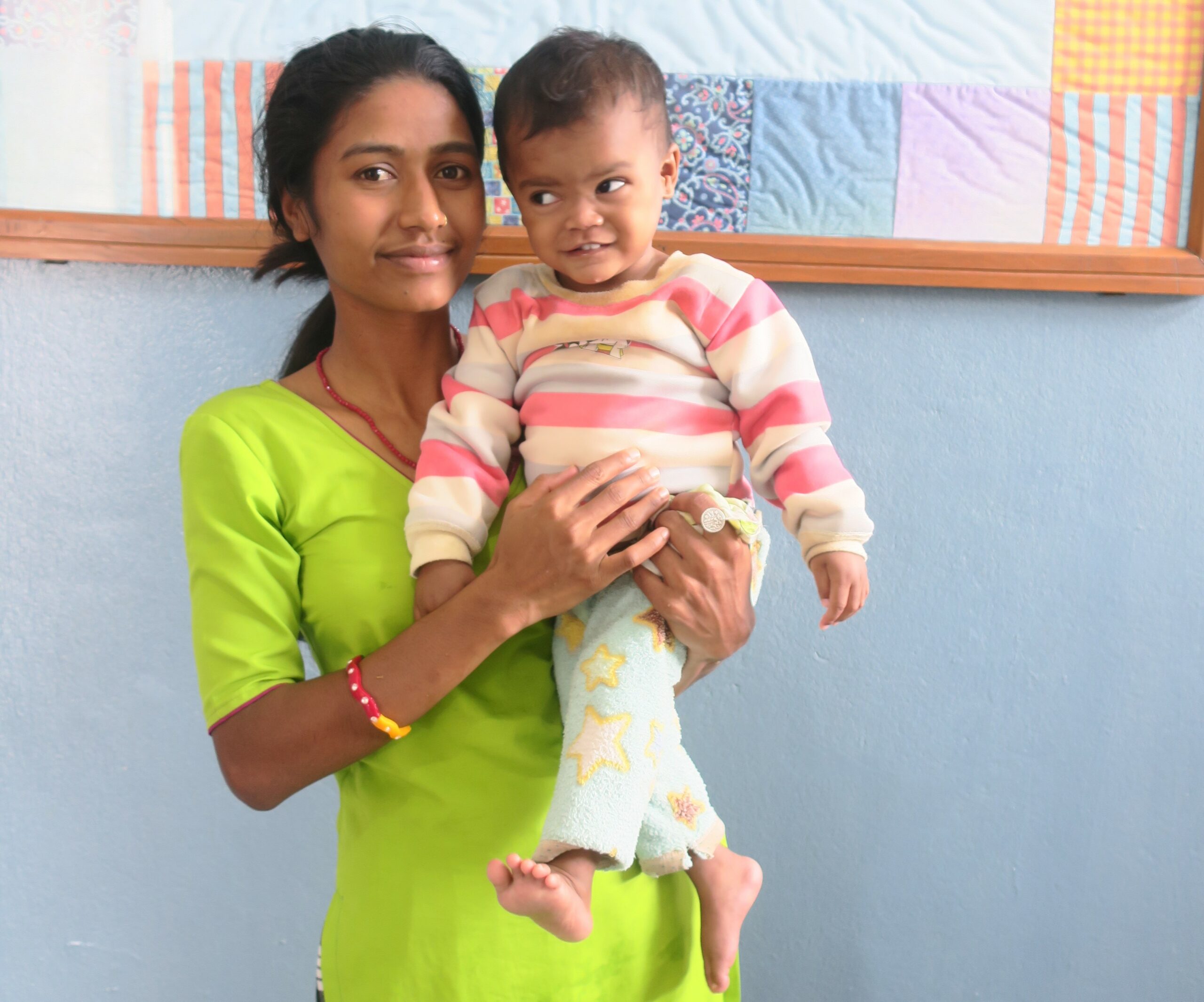
An expanded mission for the New Life Center (NLC) began effective July 2023, thanks to tremendous progress made in Nepal’s fight against pediatric HIV/AIDS!
The New Life Center has become a medical recovery home, not only for children living with HIV, but for kids and expectant mothers visiting Kathmandu for any critical medical treatment or surgery.
We are so grateful that a loving & enthusiastic NYF supporter has fully funded the New Life Center through June 2024! To support health and wellness for Nepali children this year, please consider supporting our Nutritional Rehabilitation Home. This facility, right next door to the New Life Center, serves hundreds of children per year.
Before: Empowering Kids Living with Pediatric HIV
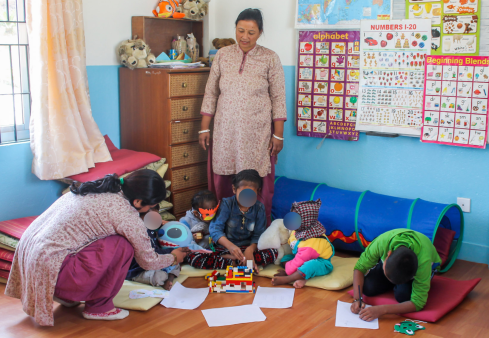
NYF established the New Life Center in 2006 as a specialized care home for children (aged 0-14) living with HIV/AIDS. Our young patients, whose fragile immune systems were already under attack from this aggressive virus, spent time in our care frequently as they grew, receiving special, loving, personalized care from our nursing staff.
Once a child’s immune system finished developing at age 15, our team connected them with their local HIV/AIDS organization for adults. This ensured strong continuity of care. Meanwhile, these local organizations referred families to the NLC whenever they learned of a child living with the virus.
Many of these children have also received NYF scholarship support in grade school and beyond!
Between 2006 and 2023, the NLC became a premier resource in Nepal for families impacted by pediatric HIV. Our team has saved hundreds of lives and empowered their families. Their work has also helped lower both virus transmission and the stigma faced by Nepalis living with this challenging diagnosis.
Nepal has made tremendous progress in slowing the rate of mother-to-child transmission of HIV. This has resulted in a reduced need for a specialized facility exclusively for children living with the virus.
Changing Health Needs
In March 2020, NLC patients returned to their home villages to avoid exposure to COVID-19, leaving the NLC almost empty. During the worst of the pandemic, the NLC cared for mild-to-moderate COVID patients who were unable to isolate at home. We offered remote care for our HIV patients, with great success. Thanks to these innovations, in 2022, the NLC received the smallest number of in-person HIV/AIDS patients since opening in 2006. Most beds remained vacant.
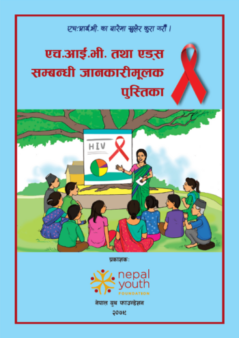
NYF spent 2022 and the first half of 2023 engaged in an ambitious HIV/AIDS Awareness & Advocacy Campaign. We proudly partnered with several grassroots organizations in districts with high rates of HIV. These organizations—Makwanpur Women’s Group (Makwanpur District), Bara Plus (Bara and Parsa Districts), and Lumbini Plus (Nawalpur and Parasi Districts)—allowed us to make quick, strong connections with local changemakers and beneficiaries, which maximized our impact. Creating a unified action plan, without interrupting the existing services each organization offered, allowed us all to serve these communities with efficiency and strength. It also created a cohesive, powerful message about HIV/AIDS Awareness & Advocacy.
You can learn more about the original mission of the New Life Center, as well as the HIV/AIDS Awareness & Advocacy Campaign, on our historical New Life Center – HIV/AIDS program page.
Between 2022 and 2023, we printed 14,000 copies of our HIV/AIDS guidebook (view the flipbook here). We originally only planned to print 500, not expecting demand to be so high! Our team distributed copies to families living with HIV, students and their teachers, women’s groups, hospitals, doctors and nurses, organizations intersecting with issues related to HIV, government offices, and community representatives. Access to this information is making tremendous headway in educating the public. NYF will continue distributing this resource as long as demand continues.
NYF has a particularly strong reputation in Nepal, for integrity, longevity, and effectiveness. Partnering NGOs reported that our project led to greater trust from the local governments, schools, and even community members living with HIV. Many of the individuals living with HIV in these areas had already intersected with the NLC, either through their own children or from having been a young NLC patient themselves. NYF’s public trust in smaller local organizations strengthened the impact of these grassroots resources.
Raising the profile of these locally-led organizations has already made their services more effective. We also trained these passionate local teams with learnings from our 17 years of experience.
Now: An Expanded Mission for the NLC

With the need for a specialized pediatric HIV/AIDS facility on the decline and the strengthening of local HIV/AIDS organizations, NYF realized that our beautiful New Life Center could now offer an broader service to the children and families of Nepal.
In 2023, the New Life Center’s mission expanded to include children and families traveling to Kathmandu for all kinds of life-changing medical care, including HIV, but no longer limited to it.
This resource allows children from some of Nepal’s most remote regions to access their right to healthcare.
Most of Nepal’s hospitals—especially those offering specialized treatments—are centralized in Kathmandu. A recent study showed that 57% of Kathmandu patients have traveled for treatment from more rural areas. This is a devastating expense for many families.
The New Life Center empowers children and families to access life-transforming medical care, to heal thoroughly without dangerous complications, and to live full, rich, joyful lives free of the long-lasting burden of crushing medical debt.
Children and their caregivers stay at the New Life Center for an average of 15 days. This is the typical duration required for follow-up and recovery from the acute medical conditions and procedures we typically see. They receive individualized, supportive care free of charge, including monitoring from nurses, nutritious meals created under the recommendation of our dieticians, emergency support and ambulance service where needed, psychological counseling as-needed, and practical, supportive advice from our staff on how to understand and implement their doctors’ discharge instructions at home.

Learn more about this program (and some early impact stories!) on the updated New Life Center – Medical Recovery Home program page.
Dhanyabad!
Thank you for the loving support that has made the New Life Center’s expanded mission possible!
NYF has been an important part of Nepal’s remarkable progress in the fight to end pediatric HIV/AIDS. We’re continuing to put our knowledge and resources to use in supporting individuals and families who are living with this challenging diagnosis. All of this is possible thanks to loving supporters like you.
Now that the New Life Center is serving a wider audience, our impact is expanding more than ever. Thank you for sharing our mission, bringing Health access to children all over Nepal!
Dadeldhura Nutritional Rehabilitation Home Officially Joins the Nepali Hospital System!
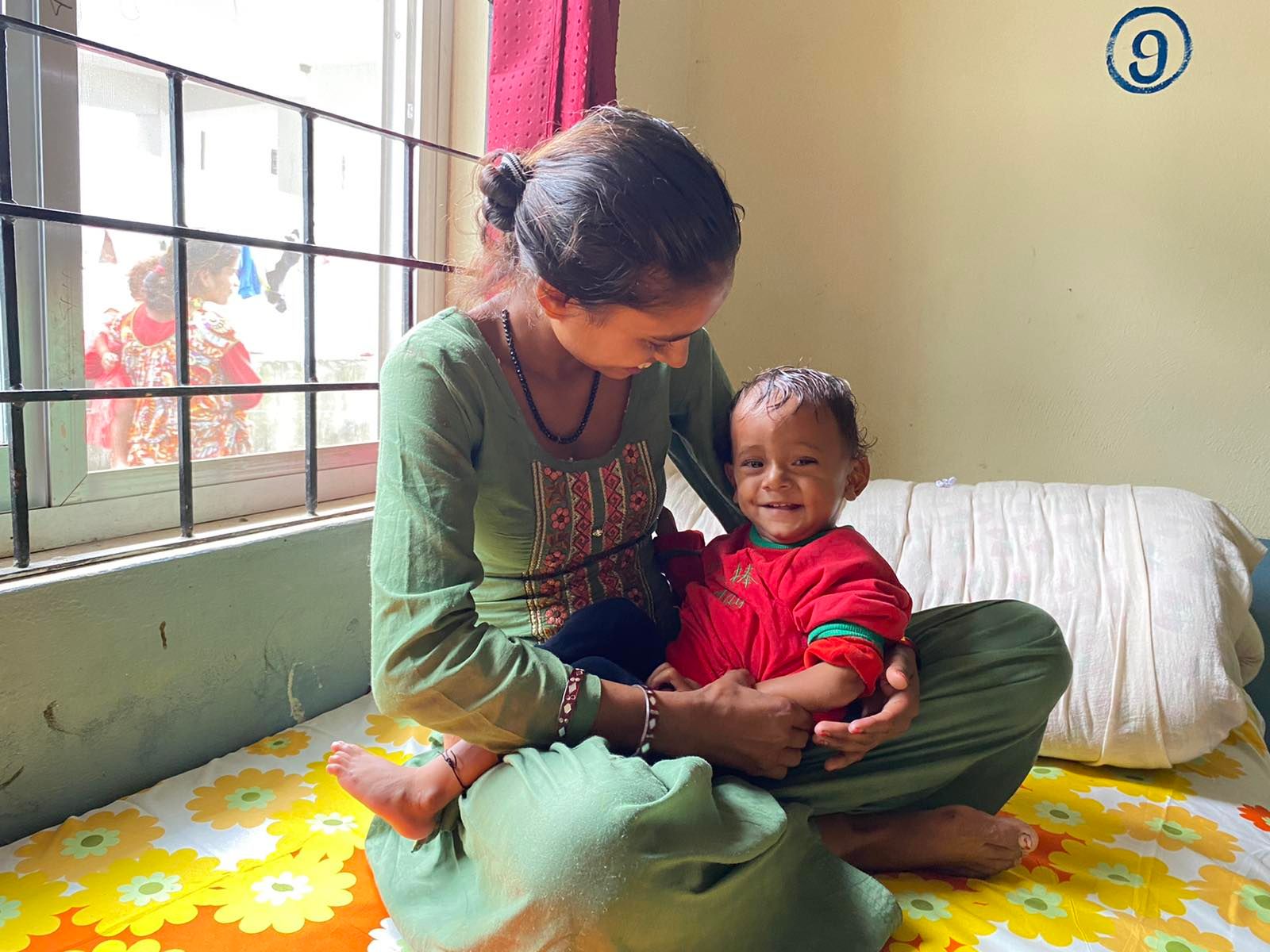
Exciting news! On July 26th, 2022, the Dadeldhura Nutritional Rehabilitation Home was formally handed over to the government-run Dadeldhura Hospital in a special ceremony. This marks the successful conclusion of NYF’s work building and launching new Nutritional Rehabilitation Homes—a project that began in 1998.
NYF’s pioneering NRH model has been so successful that it has become a central piece of Nepal’s national work to end childhood malnutrition. Indeed, the government has already built an additional seven facilities throughout the country—with more on the way! Read more about these remarkable facilities here.
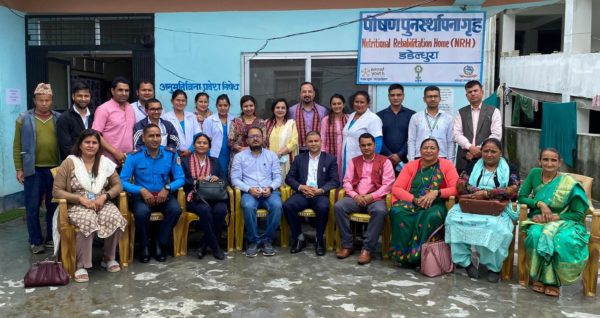
About the Dadeldhura Nutritional Rehabilitation Home
The Nepali government specifically requested the Dadeldhura Nutritional Rehabilitation Home because the children in Dadeldhura District and in multiple adjoining districts were experiencing a very high rate of stunting due to malnutrition. They had identified several of these districts as among the lowest performing in Nepal when looking at rates of stunting, anemia, and low weight in children and mothers of reproductive age.
Mothers in the region were undoubtedly eager to help their babies grow and develop into healthy, active kids and strong, creative young adults. But in many of their households, there’s no room in the budget for empty calories.
Every rupee spent on food is a rupee that can’t be spent on other necessities like rent, medicine, and school. Without access to knowledge about nutrition—what vegetables contain the nutrients kids need and how to combine and prepare foods to maximize nutritional value—mothers can only make their best guesses with the resources they have.
Many of these parents have shared stories of feeling heartache as they watched their children struggling to put on weight in spite of the adults’ best efforts.
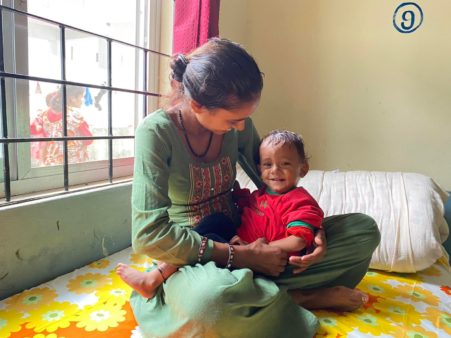
Nepal’s government hoped that one of our clinics would provide the medical support and educational resources nearby communities needed to begin reversing this trend.
This 10-bed facility (enough for 10 mother-child pairs) would be NYF’s final NRH construction project—the 17th such clinic we had built. We completed construction in August 2017 and started operating on September 1st of that same year.
Achievements at the Dadeldhura Nutritional Rehabilitation Home
In the five years since this clinic opened its doors, nine specially trained staff members have made the Dadeldhura Nutritional Rehabilitation Home a pride of the associated hospital. Here are some of their achievements:
- They provided residential treatment and care for 477 children—including diet therapy, 24-hour nursing care, medical check-ups by a pediatrician, and careful monitoring. During these stays, their caregivers, usually mothers, received hands-on training on practical nutrition education and personalized counseling on how to maximize the nutrition in their home diets using only the ingredients available to them.
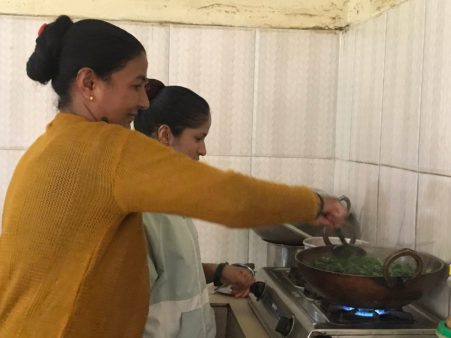
- They’ve conducted nutritional screenings (and provided personalized nutritional counseling for moms!) for 2,266 children who were visiting the Dadeldhura Hospital for other ailments when malnutrition was a contributing factor.
- Despite not having a designated field staff, NRH staff managed to conduct 56 home visits to follow-up with discharged children who had been severely malnourished enough that their cases required prolonged monitoring.
- They provided community outreach and educational events for their surrounding communities whenever it was necessary, including Breastfeeding Week, Iodine Month, and Nutrition Week.
During the COVID pandemic:
- During COVID-19, They conducted an additional 113 follow-up visits over the phone, coaching caregivers on practical nutrition tips, home hygiene, and child health care at home.
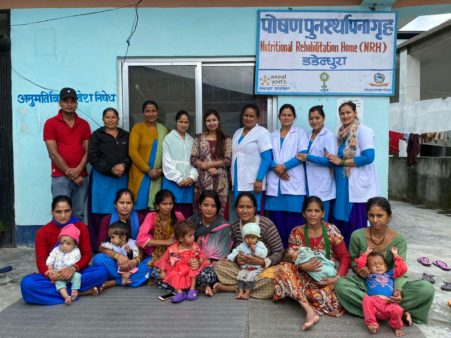
Trainings and Assessments
Staff members have been eager to continue learning to best serve their young patients. Not only have they all participated in annual “refresher” training through NYF’s Kathmandu Valley flagship NRH, but they’ve also made efforts to specialize by attending trainings held by the Nepali Ministry of Health. Several nurses have also attended a maternal and young infant child nutrition workshop. Others have participated in trainings focused on preventing mother-to-child transmission of HIV/AIDS. Most recently, a nurse attended a 5-day workshop on “Nutrition in Emergencies,” focused on learnings from the COVID pandemic.
In 2021, a government team conducted an assessment on the full Dadeldhura Hospital. The NRH scored highest among all the clinical settings associated with the hospital.
This incredible work will continue, with NYF still providing follow-up training for NRH staff members across the country. This includes those providing transformative services in Dadeldhura. In fact, we’re providing training for NRH staff members at facilities built entirely by the Nepali government! This training takes place at our flagship Kathmandu Valley NRH, led by our incredible Nutrition Coordinator, Sunita Rimal.
New Opportunities in Childhood Nutrition
Nepal, NYF, and other organizations working to combat childhood malnutrition have made tremendous strides over the 24 years since we first began providing holistic nutritional care. But the work isn’t finished.
At NYF, we strive to design programs that can one day be sustainably taken over by the communities they are serving. This keeps us at the forefront of social innovation in Nepal—focusing our attention on developing new, focused, daring programs that respond to the toughest challenges.
With the Nepali government now building and operating NRHs on its own, NYF’s nutrition team sees new opportunities to conduct life-saving Nutrition Outreach Camps in more and more remote regions of the country.
As Nepal works to improve its nationwide infrastructure, it must contend with its unique, dramatic geography. Sharp elevation shifts throughout the country make building and maintaining roads and bridges incredibly difficult. As a result, many villages are still only accessible on foot. Historically, we’ve struggled to persuade some parents to bring their severely-malnourished children to the nearest NRH, as the journey to the closest one was often several days long and potentially dangerous.
Now when we find children in these areas in need of immediate medical care, there’s an NRH within much closer reach than there has ever been before. That makes it so much easier to save more lives and introduce nutritional education to eager communities.
Thank you!
Thank you so much for being part of this journey. We are so grateful to everyone who has helped make this chapter of NYF’s journey such a transformative success—not only for the individual children we’ve nourished, but for the country as a whole.
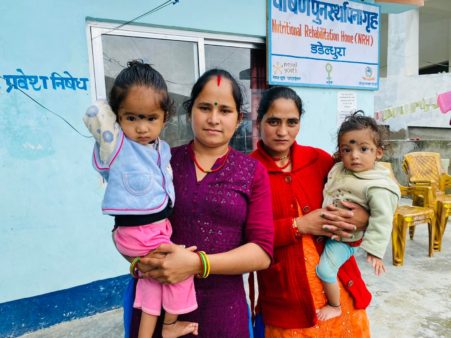
Donate Today
As Nepal recovers from the COVID pandemic and finds a “new normal”, NYF is hard at work launching new initiatives, keeping our promises to those already in our care, and integrating new learnings from the past two years. Please help us continue to grow our impact by making a generous gift today right here on our website!
Founder’s Day 2022: Thanks for Celebrating with Us!
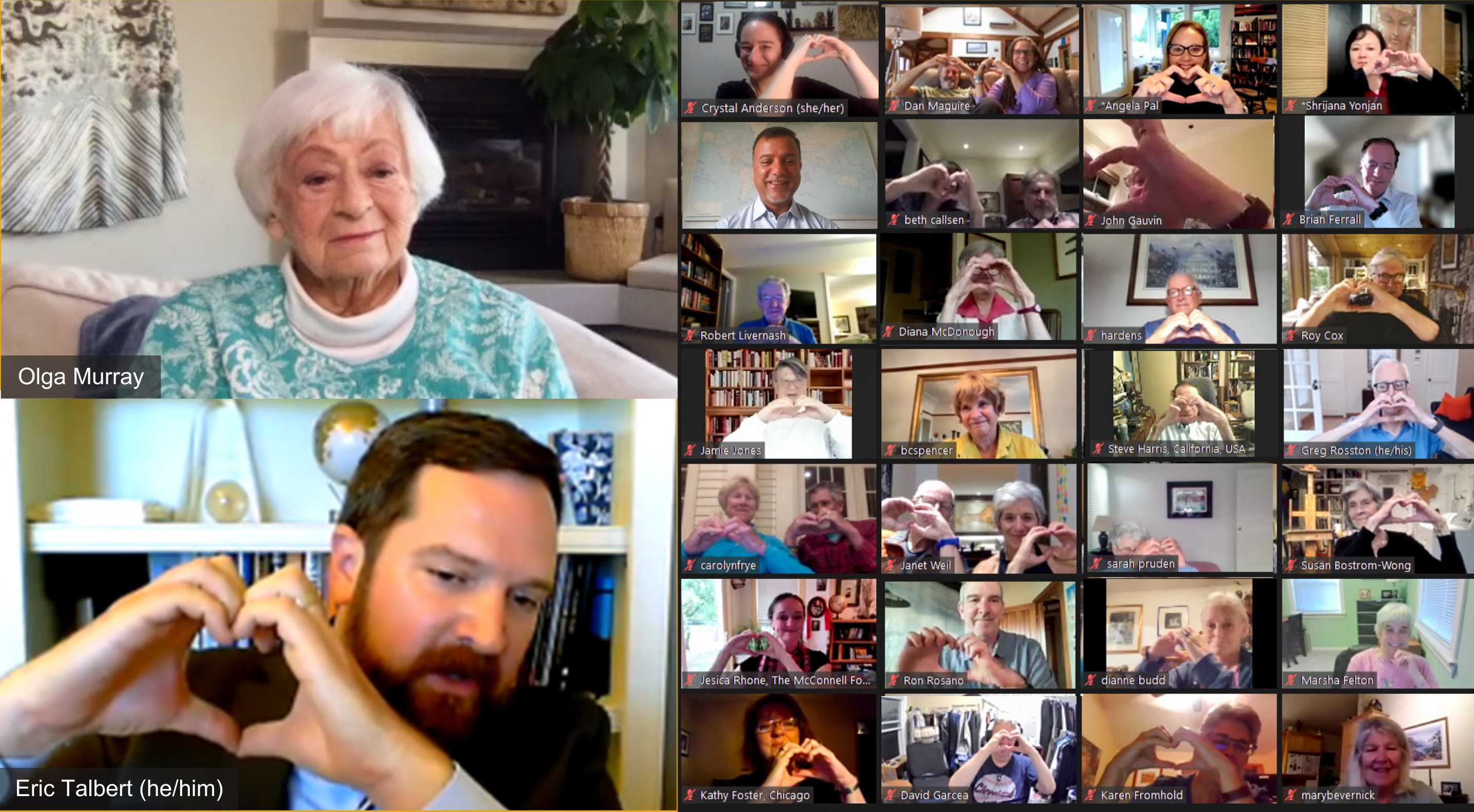
Founder’s Day 2022—held over Zoom on Tuesday, June 7th, 2022—was a tremendous success!
Thank you to everyone who signed in live to commemorate another remarkable year of transformative impact in Nepal! Our global team deeply appreciates your many messages of congratulations and support. Olga, especially, is touched by the well-wishes in celebration of her life and work.
The team in Nepal, led by Som Paneru, was so delighted to see everyone’s excitement during the event. They were deeply gratified by the warmth and encouragement our community shared with guest speakers Jeena Maharjan and Bishnu Chaudhary. If you were unable to attend Founder’s Day in person (or if you would like to share the celebration with a friend or over social media), the full event is now available through our YouTube channel.
It was so wonderful to see our remarkable community of loving supporters from across the world, current and former staff members (especially those in Nepal!), and program graduates. Meeting together in this way is such a joy—and we are so grateful you joined in the fun.
Thank you to everyone who registered, attended, participated, and donated. Thanks, too, to anyone who invited a friend or spread the word on social media. A special thank you goes to co-hosts Shrijana Singh Yonjan and Dr. Angela Pal; videographers Roy Cox and Robin Mortarotti; and guest speakers Jeena Maharjan and Bishnu Chaudhary for helping shape the inspiring presentations; author and philanthropist Isabel Allende for her beautiful birthday wish, and to the volunteers, board members, advisory board members, and staff working behind the scenes. And of course, thank you to Olga Murray and Som Paneru for giving us so much to celebrate!
Olga’s 97th Birthday Goal
We are so excited to share that we exceeded our Founder’s Day 2022 fundraising goal of $97,000 in honor of Olga’s 97th birthday! This includes donations, pledges, and auction bids.
Thank you to each wonderful supporter who donated in honor of Founder’s Day 2022! Early gifts carried us over halfway to our goal, and the remarkable generosity during our event carried us well over our goal amount. Your gifts will make a transformative difference providing Education, Health, Shelter, and Freedom to children in Nepal!
The warmth, love, and kindness of our incredible community is truly humbling for all of us on NYF’s global team. Perhaps most of all, we are humbled by the trust you place in us with each thoughtful contribution to the causes we share.

Thank you!
Thank you for helping our global team transform lives every day in Nepal. Whether your focus is nutrition programming, girls’ education, vocational and entrepreneurship training for young adults, childhood mental health, or safe housing for kids, YOUR SUPPORT makes a tangible, positive difference in the lives we touch.
Thank you for joining us in daring to tackle some of the toughest, most entrenched challenges facing the children we serve.
Your love is providing Education, Health, Shelter, and Freedom to Nepal’s newest generation—and graduates from our programs are proving that your #LoveWorks. Dhanyabad!
If you have not yet fulfilled your Founder’s Day pledge, or if you would like to make another thoughtful gift, please do so here.
Lucky Winners
Our U.S. team is contacting auction winners and pledge raffle winners. If you have any questions about this process, please reach out to us by emailing info@nepalyouthfoundation.org. You can also call our office using the number on our contact us page.
The Caste Equality Project & Educating Dalit Lawyers
A highlight of Founder’s Day 2022 was our announcement of our ambitious new program, the Caste Equality Project!
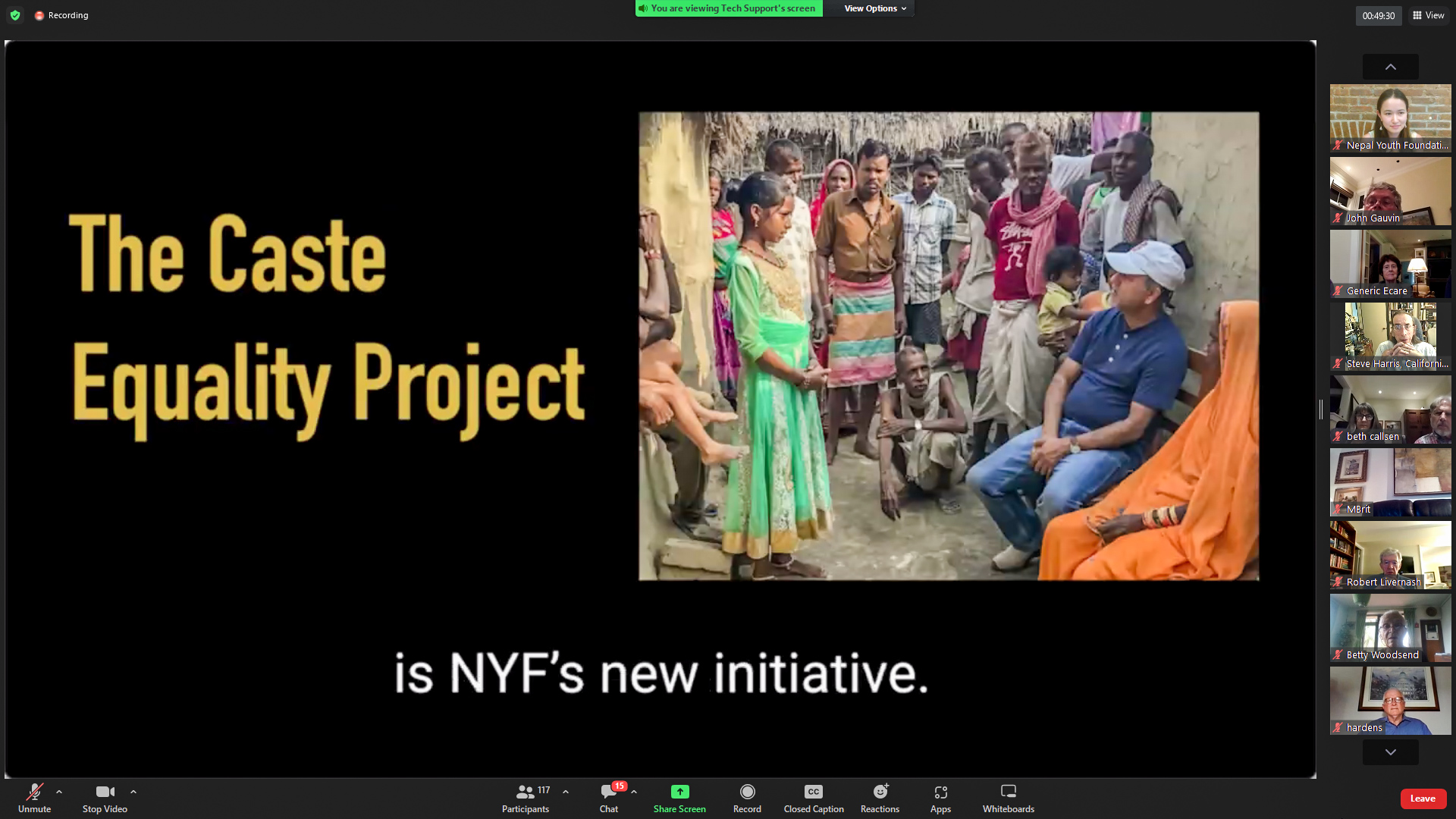
Phase 1: Educating Dalit Lawyers launches the summer of 2022. The first group of 15 students will enter Kathmandu law schools at the beginning of the 2022-2023 academic year. Olga is ecstatic about the potential these young people have to change their world for the better. Likewise, Som and his team are eager to scale our work in the coming years.
We’ve now published the program pages for these exciting projects (linked above). Meanwhile, we will also be sharing photos, stories, and information about our progress as this information becomes available.
Please keep an eye out for updates right here on our blog about all our programs. We’re so excited to share more with you soon about the impact your support is having on the lives of so many!
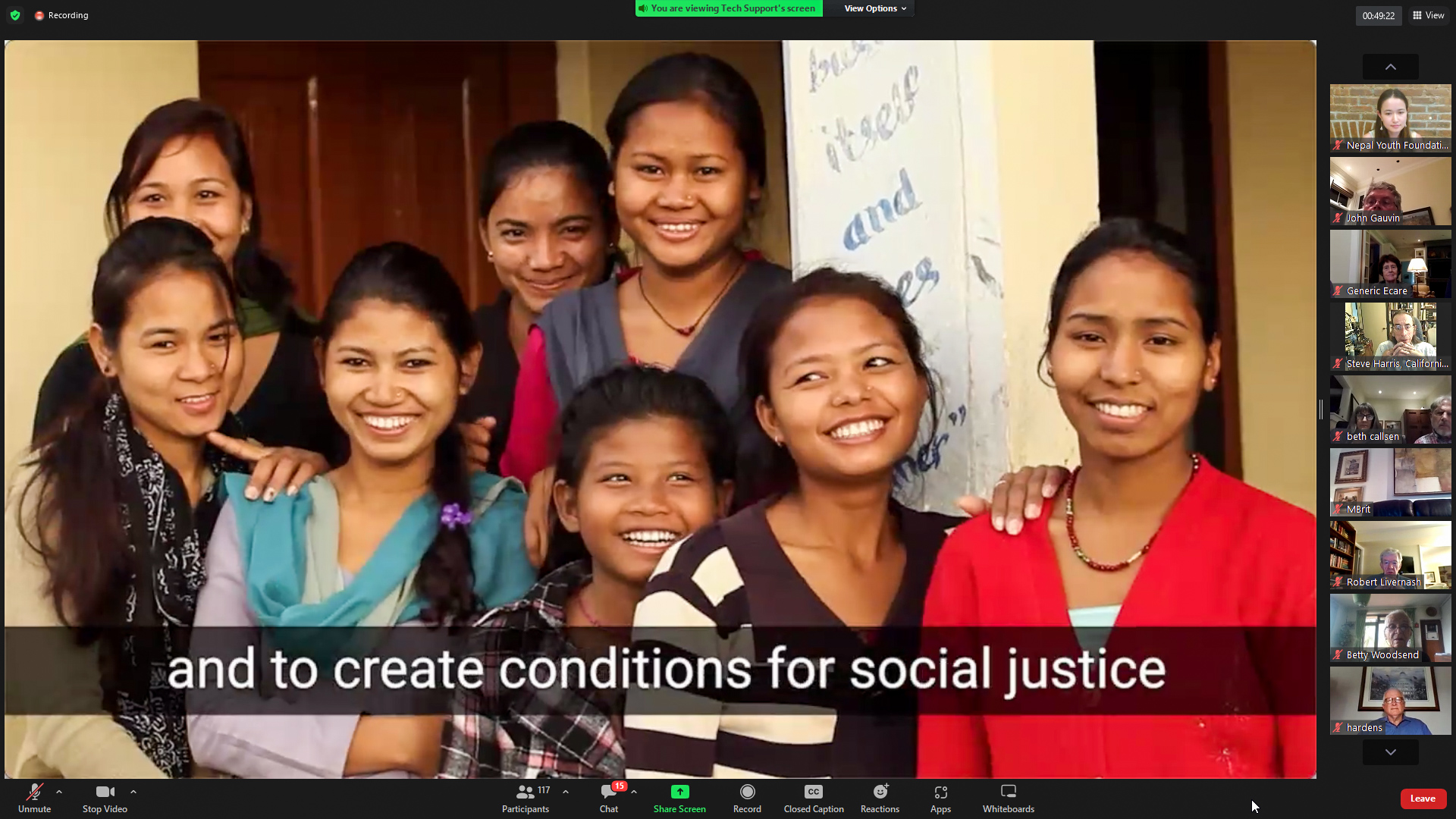
Dhanyabad!
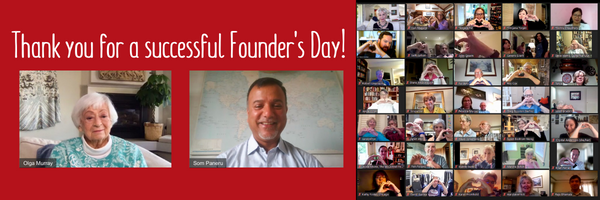
NYF’s COVID-19 Timeline
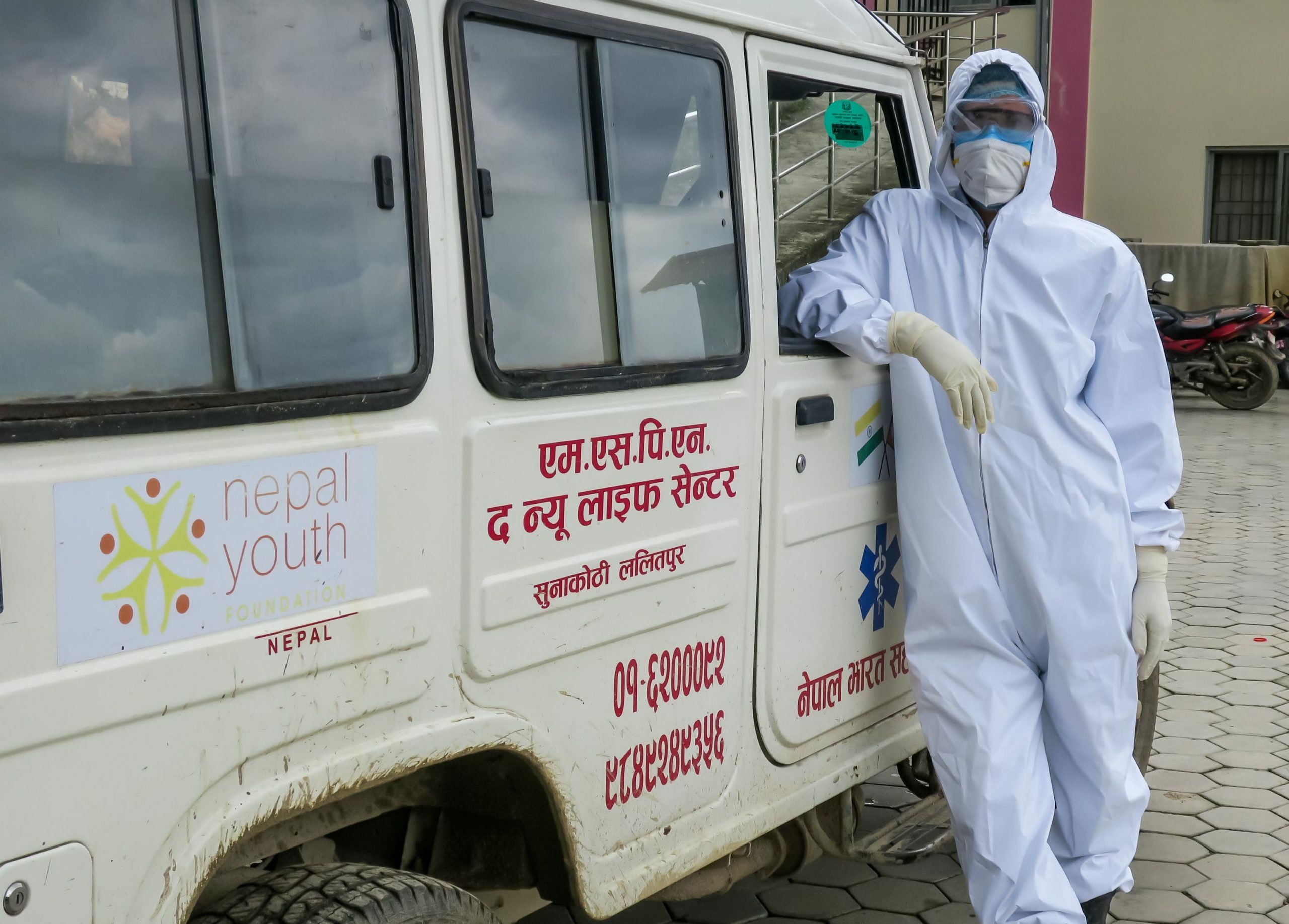
A brief overview of COVID-19 in Nepal; and NYF’s strong responses to it.
This timeline regarding NYF’s COVID response is a developing piece. Last updated: 3/11/2022
On March 11, 2020, The World Health Organization (WHO) declared COVID-19 a pandemic. Not too long after, on April 4th, 2020, Nepal confirmed its first locally-transmitted case of COVID-19. Since then, NYF has launched five emergency programs in response to the pandemic (Community Nutrition Kitchens, The Emergency Lifeline Halfway Home, Access to Education, Lito for Life, and our very own COVID Isolation Center).
Thanks to our dedicated team in Nepal and loving support from the wider NYF community, these programs have been an incredible success. Chiri Babu Maharjan, Mayor of Lalitpur Metropolitan City, has commended NYF “for its outstanding services since the very beginning of the COVID-19 pandemic in Nepal, and for the well-facilitated quarantine and COVID Isolation Center in partnership with Lalitpur.”
NYF’s swift and effective response to the deadly surge of the Delta variant in April 2021 has also been highlighted by BBC News.
NYF remains incredibly grateful for our community of supporters, and for our amazing team in Nepal. Thank you all for being so patient, supportive, and generous during these challenging times. Whether you joined us recently or have been here with us since the beginning of this pandemic: Dhanyabad.
46
people sheltered via The Emergency Halfway Home
80
education centers opened via Access to Education
5,061+
kg of Lito flour distributed through Lito for Life
5,311
hot meals served through Community Nutrition Kitchens
Please scroll down to view NYF’s pandemic timeline.
Staff Spotlight: Reeta Mahat, Social Worker
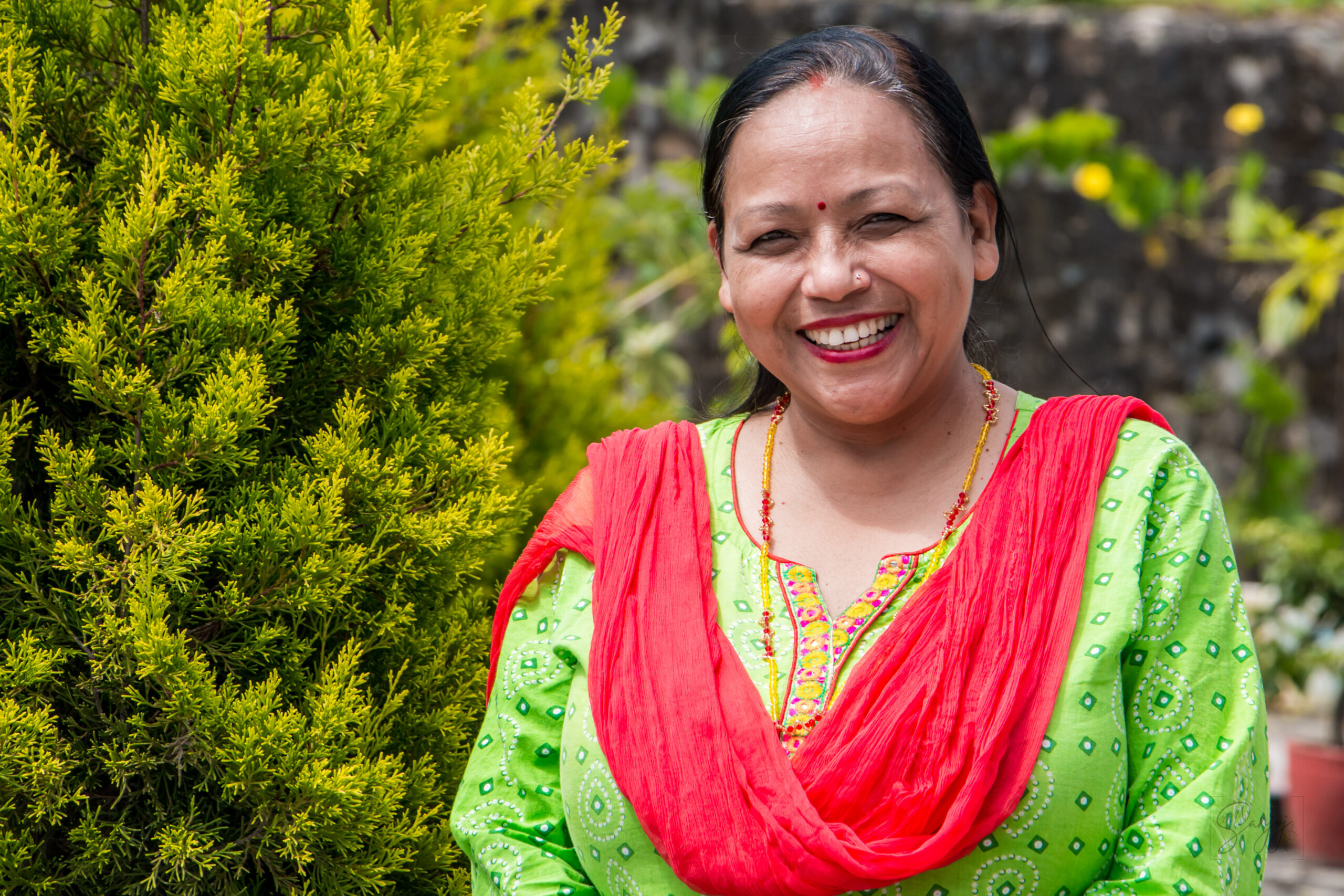
Reeta Mahat joined the NYF Nepal team 20 years ago, in 2001—first as a receptionist, and later, beginning in 2010, as a social worker. Since then, she has touched the lives of hundreds of NYF scholarship recipients, many of them calling her Reeta Didi. She is the longest serving social worker on NYF’s staff, and she brings an incredible amount of heart to the work she does each day.
“I currently have an 18 year old girl, Vamil*, in my program who is studying in grade 12,” says Reeta, when asked about her favorite part of working at NYF. “We started supporting her when she was six years old in 2008.”
Vamil’s family had experienced a series of tragedies one after the other—her father died of cancer, and all the money and property had been spent on his treatment; her brother passed away in a tragic accident; and Vamil’s mother developed severe depression.
“Although I was a receptionist at NYF when Vamil came to NYF, I used to meet her often and talk to her. During the Dashain holidays I used to take her with me to her village and drop her off at her home, which was on the way to my own village. I still remember the whole day-long bus rides we had together to go home for Dashain. It is now so heartwarming to see that little child grow into a confident girl. She is doing very well in her studies. After graduating, Vamil wants to study nursing.”
“Vamil’s mother is also doing much better now,” Reeta adds warmly. “Seeing her children doing well in life is helping her cope with her own health conditions.”
Learning about NYF
Shockingly, Reeta Mahat’s work with NYF began almost by chance! Raised in a very traditional Nepali home, Reeta never expected to work after marriage, and she focused her education on learning to be a good mother. But circumstances were different than Reeta had imagined, and in 2001, she was desperate for a decent job that could pay the bills for her family—including three small children. A family friend told her there was an opening at NYF, and Reeta applied.
“The job at NYF was literally a savior for me and my family,” Reeta recalls. “The income allowed me to give a good education to my children and raise my family. And the supportive, family-friendly office environment also helped me to continue despite the difficulties I faced as a working mother. But over the 20 years I have been with NYF, I have grown a lot as a person. Now I want to be able to help people who are going through the most difficult circumstances, like what I went through myself in my earlier years. Support from NYF is changing the lives of thousands of children and their families and I am so happy to be part of this change.”
International Youth Day 2021: SAAET Stories from Early Project Graduates!
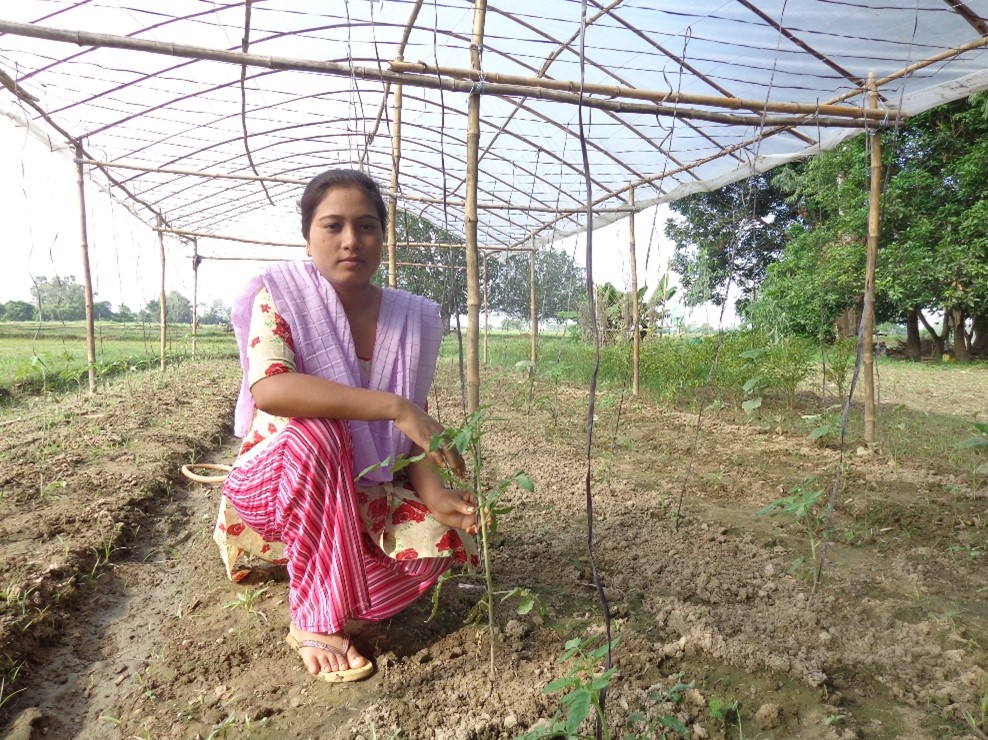
International Youth Day
International Youth Day occurs every year on August 12th. It’s a valuable chance created by the UN to focus on the biggest issues facing young people throughout the world. The theme in 2021 is “Transforming Food Systems: Youth Innovation for Human and Planetary Health.” As the world population grows and nations respond to climate change, sustainable food systems will become more important than ever. To achieve the necessary changes, the participation of young people is critical!
This International Youth Day is a great opportunity to share some of the earliest success stories from NYF’s new SAAET Project!
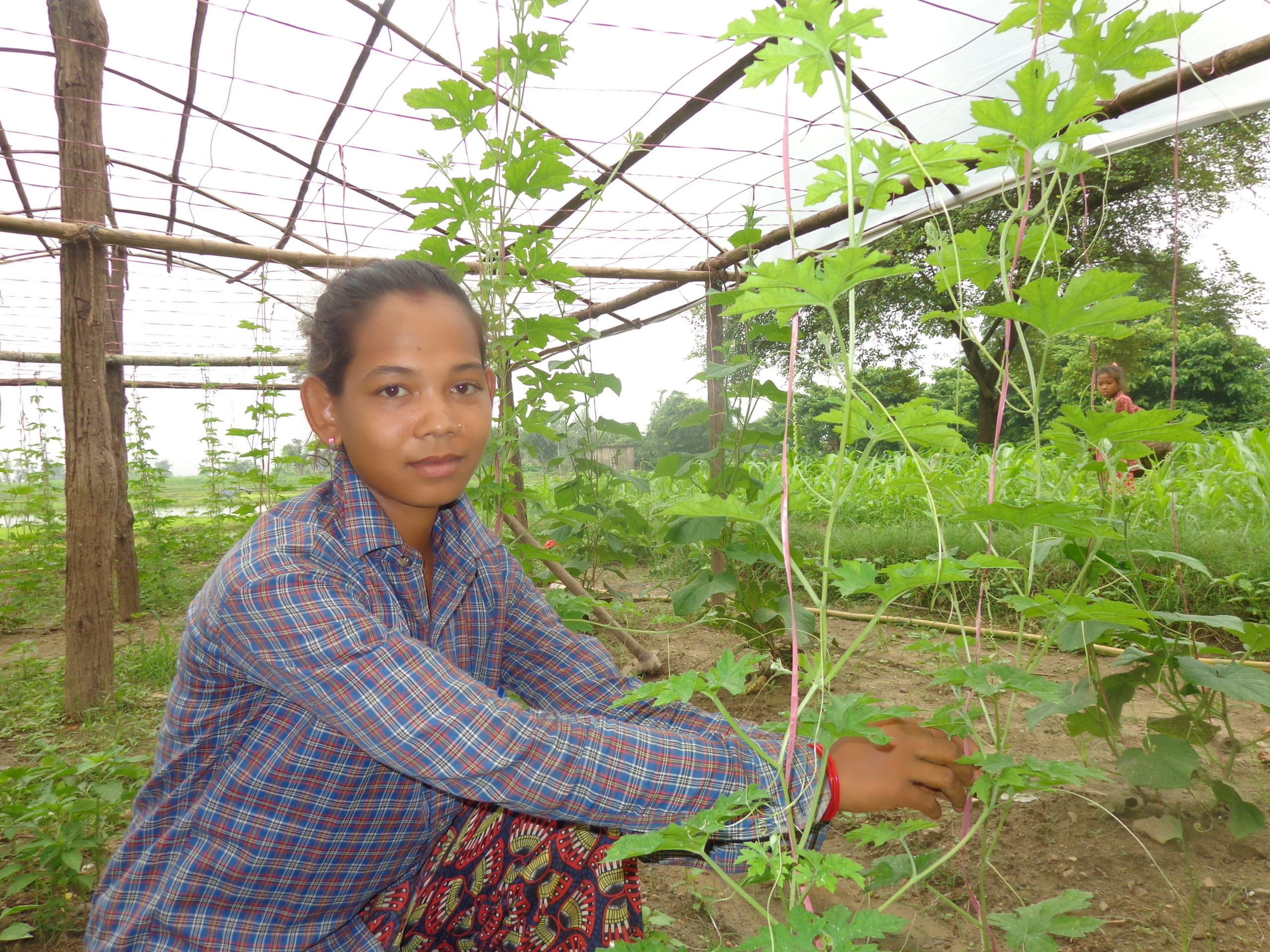
The SAAET Project
Saaet is Nepali for “an auspicious moment of starting a new journey” – and at NYF, it stands for Sustainable Agricultural and Entrepreneur Training.
This project tackles gender inequality, skills development, and food systems all at once. Designed especially with young women in mind, this course brings simplified greenhouse technology and up-to-date organic agricultural practices to individuals hoping to achieve financial success while staying within their home communities.
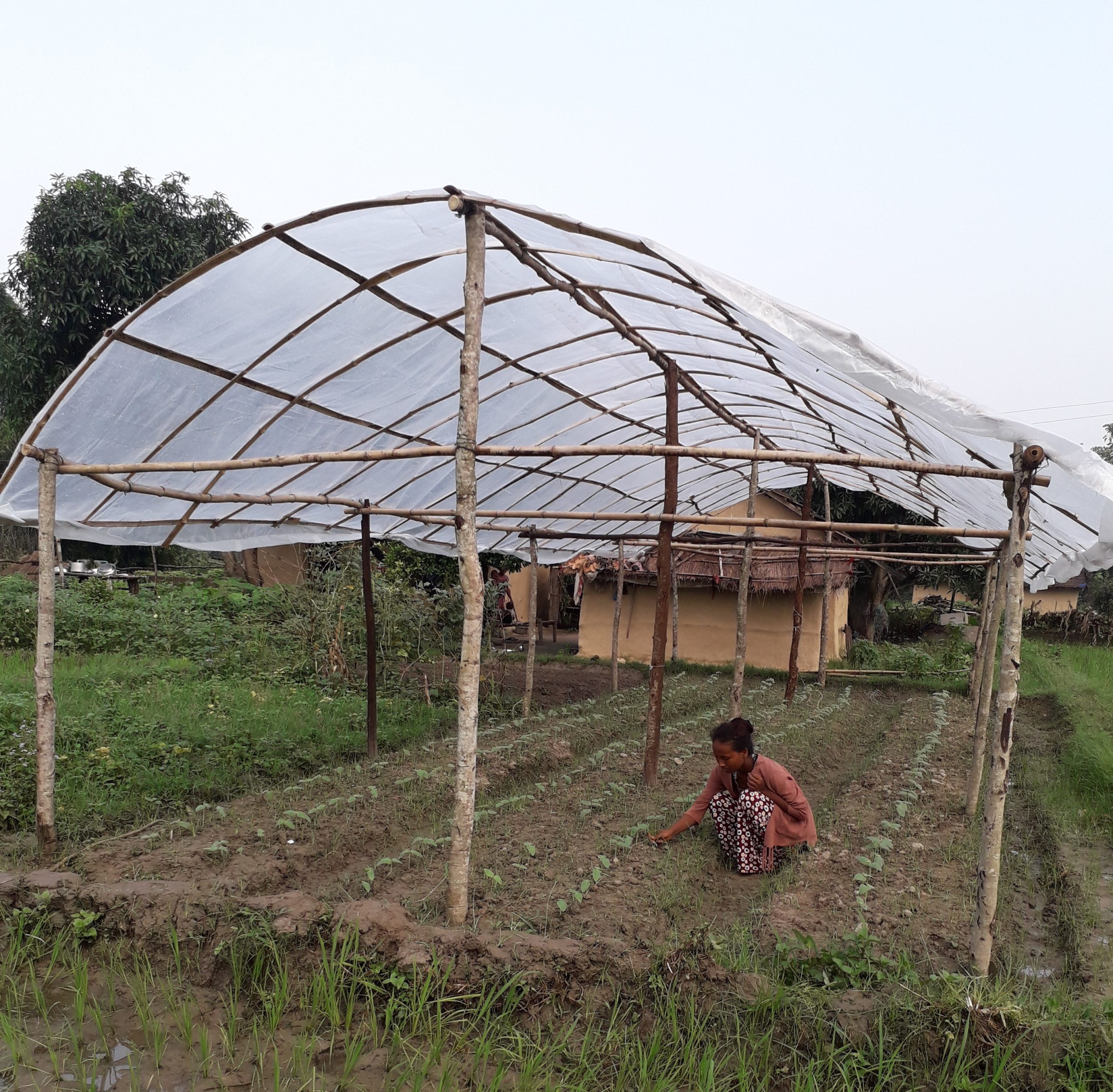
NYF’s Vocational Education and Career Counseling Program (VECC) offers multiple job readiness and vocational education options to Nepalese young people seeking career opportunities close to home. Those we help are experiencing many different kinds of barriers to economic success—but those most in need are usually young women.
The SAAET Project is just one part of NYF’s work to combat child marriage in Nepal, and part of our commitment to helping young women and girls find economic empowerment on their own terms.
Our first class of SAAET students were Freed Kamlaris from the Western Terai. Their training took place in March-April 2021—let’s see how they’re doing!
Sunita T.
When Sunita was only 13 years old, her father sent her to work as a kamlari far away from her home in Bardiya District. In exchange for her labor, the family was promised two things: they would be allowed a large enough plot of leased land to feed the family year-round, and Sunita would be sent to school.
As so often happened, the family broke their promise about Sunita’s education. She worked as a kamlari for 5 years, until she was 18 years old. NYF knew about her situation from surveys conducted in the village, and we had to threaten legal action to finally bring her home.
Sunita is 26 years old now, and the memories of her days as a kamlari are still fresh and painful.
She worked extremely long hours, from early in the morning to very late at night, locked in the house doing cooking, cleaning, childcare, and any other work that came up. Sunita hopes no child ever has to suffer that way again.
Once rescued, Sunita enrolled in grade 6 and managed to complete her studies through grade 10. In Nepal, all students must take the notorious “Iron Gate” exam (the Secondary Education Examination) at the end of grade 10. This extremely rigorous test determines who can move forward. Sunita was unable to pass the Iron Gate, so her academic studies ended there.
She got married in her early 20s and, through NYF support, took an 18-month vocational course in agriculture. Sunita and her husband decided they preferred the idea of farming over the notion of working for someone else, so they applied for a microloan from their local co-operative and started banana farming. Soon they added vegetables, chickens, and pigs. Sunita and her husband have been happy to be able to pay back the co-operative loan, and they’re paying the lease on their land through their own earnings now.
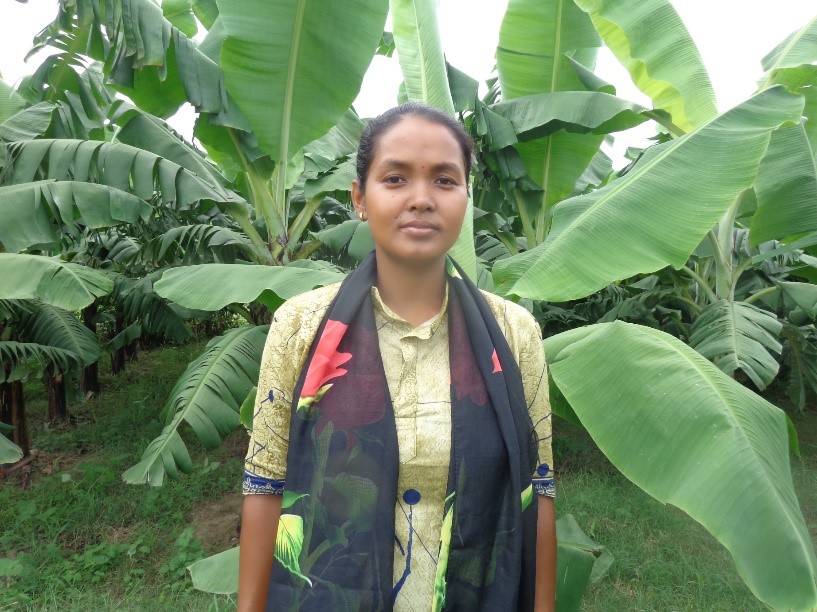
But Sunita hopes to be able to own the land outright and expand the business further.
That’s why she was so happy to join the first class of the SAAET Project. The material taught in the class expanded Sunita’s existing knowledge of best agricultural practices and gave her great new ideas for her farm. She also learned helpful business practices!
When she returned home, the spring COVID outbreak was just hitting the Western Terai, and shutdowns made accessing building materials more difficult than expected. But Sunita was still able to start working on her own new greenhouse, which will allow her even more crop flexibility. She is already harvesting her first greenhouse crops, and she’s looking forward to being able to continue growing vegetables through the winter months. Sunita and her husband are hoping their farm will become a model for other farmers in the region.
“Dhanyabad, NYF!” she says. “I am very grateful for the invaluable support I have received from NYF which has transformed my life beyond my imagination.”
Lila C.
When Lila was born, her entire family was bonded in a practice called Kamaiya. Nepal abolished the Kamaiya system in 2000, freeing the family from this exploitative practice. But without much government support for families like Lila’s, they soon needed access to farmland they could only get by making Lila a kamlari for their landlord. (Kamlari was the last remaining piece of the old Kamaiya system.)
“My landlords did not send me to school, but I missed going to school badly. I was studying in grade 4 when I had to become a kamlari,” Lila says. “I had to sacrifice my education just for my family to be able to get two decent meals a day. There was no way the landlord would give us the land for farming if I refused to work.” Lila was ten years old and carrying the threat of her whole family’s starvation on her shoulders.
As a kamlari, “I had to do all the work from cooking, cleaning and looking after the landlord’s children, to cutting and collecting fodder for the cattle,” she recalls. “If I was ever late to come home or late for work, I would be scolded badly.”
One year into her time in bondage, Lila learned about an anti-kamlari campaign in her village. “I feel so lucky that I did not have to work as a kamlari as long as so many of my friends did,” Lila says. NYF had been collecting the names of known kamlari girls, and Lila’s name had appeared on these lists. “I was worried I wouldn’t be able to go to school after returning home, but on the day of my rescue, I heard that the same organization would be sending me to school, too. I felt so happy. And I suddenly felt so relieved and light at heart because I would not have to bear the anger and scolding from the landlords anymore.”
Lila studied all the way through 12th grade and then completed an 18-month agricultural science course on an NYF scholarship.
She and several other freed girls established their local co-operative to help their community grow its economic power, and Lila helped her family start up a vegetable farm that could feed them year-round and even bring in up to $60 a month.
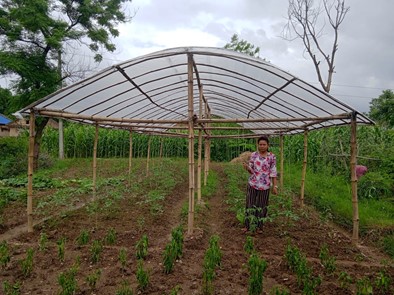
Lila got her greenhouse started right away when she returned home from the SAAET training. Her family is already seeing the benefits of the program on their diet and on their ability to bring in extra cash! She is looking forward to adding in the drip irrigation system soon, and is planning her strategies for fall and winter crops.
Now, at age 26, Lila knew she needed a bit more specialized knowledge to take the family farm from subsistence agriculture to a fully-fledged business. She was thrilled to hear about the SAAET Project.
“During the training I learnt about increasing production by growing vegetables throughout the year using more efficient tools and techniques,” she explains. “I also learnt about organic farming and producing organic pesticides by myself. NYF not only provided the skills but also a start-up fund for us to build a greenhouse. With the money and the skills, I and my family have built a greenhouse near our house and have already started vegetable farming. I am confident that we can produce far more than before and increase our income. Gradually we plan to expand greenhouse farming and establish a successful business.”
Arati T.
Arati was ten years old when her father sold her off as a kamlari in a different village. “Even now, I always get sad and wonder what made my father to sell me as a kamlari,” Arati says. “I try and console myself that it was not entirely his fault alone, and that he was a victim of the oppression and the ill practice of slavery of the Tharu people.”
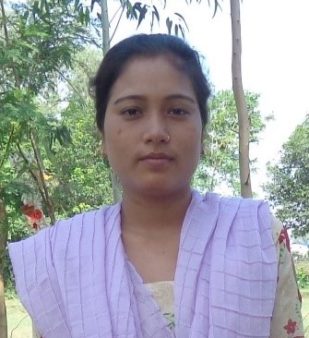
Memories of her kamlari years are painful and difficult for Arati.
“My parents had sent me as a kamlari on the condition that I should be sent to school. The landlords therefore admitted me in school, but I was able to go to school only after finishing all the work at home. I had to wake up in the dark hours before four o’clock in the morning and start my chores. I looked after the landlord’s children, cooked, cleaned, did the dishes, and all the other chores around the home. The landlords would get very angry if I made any mistake and scolded me constantly.” Arati takes some faint consolation in the fact that her landlords did not beat her.
“I was desperately looking for a release from this condition,” Arati recalls. “I wanted to be free like other children and go to school like them.”
After three years, a massive anti-kamlari campaign took hold in Arati’s village and NYF rescued her from bondage by NYF. “I felt very lucky that I got this life changing opportunity,” she says, “and I pursued my studies seriously.”
Arati recently completed the 12th grade. During her studies, she was part of a group of freed girls who established a local co-operative for savings and credit. She’s a proud contributing member of this co-op.
Back in 2018, Arati and her family acquired a plot of land to start a vegetable farm—but they have not managed to run it in a systematic, commercial manner. Arati signed up right away when she heard about the SAAET Project, knowing the training would make a huge difference.

“During the training we (21 girls including me) learnt a lot about using more advanced tools and technology for greenhouse farming, and about adopting agriculture as an income-generating enterprise.
After I returned home from training, I have built a greenhouse and started vegetable farming with the help of my family. I now have the knowledge about both seasonal and off-season farming, which will enable us to produce vegetables throughout the year. I am confident that by using the knowledge and skill I acquired from the training, we can easily increase the production and income by as much as three times than what we are able to do now. My parents are also very happy and proud of me and the work we are doing as a family.”
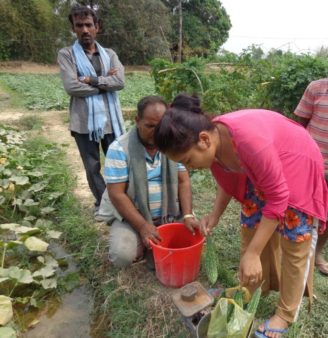
Those in Arati’s village are already spreading the word that she has vegetables to sell! Her farm, and others like it, will make an enormous difference in the health of the surrounding communities.
Only the Beginning
The SAAET Project has developed organically as NYF has responded to the pandemic—and we are enthusiastic about developing it further. This International Youth Day, we are so proud to be helping communities of young people pull their communities forward using new innovations and skills.
As Nepal’s economy heals from the COVID-19 pandemic’s impacts, young people in Nepal will need job preparedness training and career education more than ever.
To help us continue offering the SAAET Project and other vocational training programs, please donate today, and share our message on social media!
(For an even greater future impact, consider celebrating National Make a Will Month throughout August 2021 by joining our Legacy Circle!)
